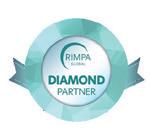






At exedee we put our energy and expertise into enabling your organisation to manage process automation and digitalisation with ease … and with >99% accuracy.
Recognise any of these common business problems? We can solve them for you!
Problem #1 Problems managing inbound documents – manual data entry & processing delays and issues
Problem #2 Accounts Payable / supplier invoice processing delays and approval issues
Problem #3 Issues and challenges turning paper documents into accurately scanned files
Problem #4 Digital filing - issues trying to find specific documents in a collection of scanned files
Problem #5 Issues managing and monitoring contracts
Problem #6 Issues centralising all customer information so that everyone can find and use it
Problem #7 Conflicting & duplicate data issues in your business information
Let us show you how our eSolutions work easily, effortlessly and exactly – to solve your business problems and streamline your records and information management processes.
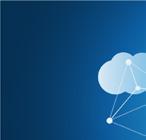
EDITOR: Peta Sweeney
Information and Content Specialist
Email: editor.iq@rimpa.com.au
Post: Editor, iQ Magazine
1/43 Township Drive
Burleigh Waters Qld 4220
DESIGN: Amanda Hargreaves





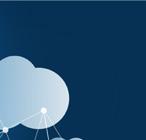
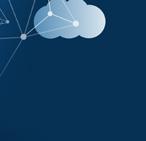

Ole Creative - Graphic Design Agency
Web: www.olecreative.com.au
Email: amanda@olecreative.com.au
Stock images: Shutterstock
ADVERTISING
Peta Sweeney peta.sweeney@rimpa.com.au
EDITORIAL COMMITTEE
Stephanie Ciempka (ACT)
Peta Sweeney (QLD)
Matt O’Mara (NZ)
David Pryde (NZ)
Philip Taylor (QLD)
Roger Buhlert (VIC)
CONTRIBUTIONS & EDITORIAL ENQUIRIES
Articles, reports, reviews, news releases, Letters to the Editor, and content suggestions are welcomed by the Editor, whose contact details are above.
COPYRIGHT & REPRODUCTION OF MATERIAL
Copyright in articles contained in iQ is vested in their authors. Most editorial material which appears in iQ may be reproduced in other publications with permission gained through iQ’s Editor.
ANNUAL SUBSCRIPTIONS
iQ DIGITAL ANNUAL SUBSCRIPTION
$49.50 incl GST ($) per annum for 2 issues RIMPA Global | Phone: 1800 242 611 International Phone: +61 7 32102171 To subscribe head to www.rimpa.com.au
iQ ONLINE ARCHIVE
Copies of articles published in iQ since 1984 are available at the Members Only section of the RIMPA Global website, in the iQ Article Archive. The Members Only section of the website can be accessed with RIMPA Global membership.
DISCLAIMERS
Acceptance of contributions and advertisements including inserts does not imply endorsement by RIMPA Global or the publishers. Unless otherwise stated, views and opinions expressed in iQ are those of individual contributors, and are not the views or opinions of the Editor or RIMPA.
www.rimpa.com.au


BONITA KENNEDY LIFE ARIM CHAIR OF THE BOARD RIMPA GLOBAL

ANNE CORNISH LIFE MRIM CEO RIMPA GLOBAL
As 2025 draws to a close, it’s the perfect moment to reflect on RIMPA Global’s achievements and share our vision for an exciting 2025. RIMPA Global have seen incredible growth, strengthened partnerships, and driven innovations that will shape the future of information management.
This year, RIMPA Global continued to expand its reach with a highly successful Roadshow Program, connecting members and professionals across the nation. We also launched the MILA tool, a gamechanger for private industry, providing effective solutions for managing retention and disposal processes.
Our commitment to advocacy has seen us actively engage with various sectors, including the Australian Public Service (APS), championing the importance of information management. This dedication to advocacy and community is one of the contributors to a 9% growth in membership, a testament to the value RIMPA Global offers its members.
RIMPA Global were thrilled to host its subsequent Education Summit, an event that gathered experts and practitioners to exchange ideas and share knowledge, driving industry innovation. This complimented RIMPA Global’s mission to support ongoing and continuous learning, as the online eLEARN program was launched. This program enables members to upskill at their own pace with flexibility and convenience. Additionally, we delivered 207 interactive online training workshops, attracting a total of over 1,400 attendees, helping professionals advance their skills and knowledge.
Another milestone this year was the creation of RIMPA Recruit and RIMPA Career. These new initiatives are designed to assist employers in finding the right information management professionals and help practitioners progress their careers within the industry, reinforcing RIMPA Global’s commitment to supporting our members at every stage of their journey.
We also formed key partnerships with affiliated bodies, furthering our collaborative efforts to support information management worldwide. A particularly proud achievement was the endorsement of our global strategy to assist developing countries to achieve information management maturity, contributing to a more inclusive and empowered global community.
In keeping with our goal to encourage innovation, RIMPA Global held the inaugural Hackathon, inspiring creative solutions and driving forward change within the industry.
Looking forward, we are excited to announce that RIMPA Live Convention 2025 will be held at the prestigious Pullman & Mercure Melbourne Albert Park on 28, 29, 30 October 2025. This event promises to be another highlight, bringing together leaders and innovators to explore the future of information management.
As we head into 2025, RIMPA Global have decided to set a theme that will be the focus for all things RIMPA Global such as RIMPA Live Convention, Roadshows, webinars and much more. The 2025 theme is “Future-Ready in Information”. 2025 will also see RIMPA Global becoming more committed to reducing our environmental impact. In line with our Paper-Lite Policy, we are taking significant steps toward becoming less reliant on paper in our office operations. Reflecting this commitment, iQ Magazine will be available exclusively in electronic format, saving both our environment and resources while delivering the same high-quality content.
As the festive season approaches, we want to wish each of you a Merry Christmas and a safe and Happy New Year. On Christmas morning, I hope you all wake up knowing that RIMPA Global delivers presents all year long in the form of valuable member benefits and opportunities.
Thank you for your continued support. Here’s to a remarkable 2025, filled with growth, innovation, and exciting opportunities!
Bonita Kennedy Life ARIM – Chair of the Board
Anne Cornish Life MRIM - CEO
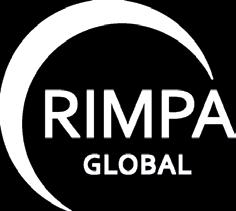
Ambassador Program Hosts First Executive Master Class
RIMPA Global Acquires ARRM MILA: A Fresh Approach to Information Legislation
Pioneering Technology in Higher Education First Ever Education Summit
RIMPA Global Advocates to the Prime Minister o 2024 Roadshow Series
Our Wise Leaders (OWLS)
RIMPA Recruit and Career Platform Launched
RIMPA Global Board Approves Global Strategy New Community of Practice in India
Welcoming KARMA Kenya: A New Partnership
New Cyber Protect Program
Hackathon 2024: Innovation in Action
RIMPA Global & Dr. Bilkhair Inspire UAE Youth
RIMPA eLEARN Platform Debuts Workshops: A Year of Learning
Global Information Consortium Finalises Strategic Plan

Since our last edition, we’ve had an eventful time in the membership space!
We’re excited to welcome 43 new members to the RIMPA Global community, and renewals have been equally active. If you haven’t received your renewal notice, we encourage you to reach out to the membership team (admin@rimpa. com.au) to ensure you don’t miss out on the benefits and opportunities.
THE FUTURE OF OUR PROFESSION: EXTENDED STUDENT
At RIMPA Global, we’re passionate about nurturing the next generation of records and information management professionals. That’s why we’ve made an exciting update to our Student Membership program. We’ve extended the complimentary membership period from 1 year to 3 years, giving students even more time to access resources, connect with industry professionals and gain invaluable career guidance. This change reflects our commitment to helping future leaders build a strong foundation for successful careers in information management.
The 2024 Annual Member Survey has been finalised, offering a clear view of our community’s needs and preferences. Over 70% of respondents believe their RIMPA Global membership provides great value, and 82% praised the responsiveness of RIMPA Global staff. Members also emphasised the importance of webinars, newsletters, and virtual training workshops, with many expressing a strong interest in more virtual events and practical resources.
"We’re committed to evolving our offerings and advocating for the vital role that records and information management plays across all sectors."
These insights are instrumental in guiding RIMPA Global’s future offerings, ensuring that we continue to deliver top-notch professional development.
RIMPA Global has also confirmed exciting ways to enhance engagement, from certification programs to more networking opportunities by an increase in Communities of Practice (CoP’s) – which are coming in 2025! We’re committed to evolving our offerings and advocating for the vital role that records and information management plays across all sectors.
In August 2023, RIMPA Global established the Status Improvement Working Group (SIWG) to drive professionalism within our community. This initiative stems from the concept reports submitted by the Status Upgrade Review Working Group in May 2023. Since then, the SIWG has focused on three main objectives: addressing 21 key recommendations, reviewing professional status levels and pathways, and refining the current professional member certification framework.
A draft model for professional status and certification was approved by the Board in June 2024 marking a significant milestone. The final model will be presented in December 2024, but a sneak peek was shared during the "Maximise Your Membership" session at RIMPA Live 2024.
Keep reading to hear about our recent status upgrades outlined on page 21.
RIMPA GLOBAL AND COX PURTELL: PARTNERING TO ELEVATE
Earlier this year, RIMPA Global announced a new partnership with Cox Purtell, a leading recruitment agency.
This collaboration, part of our RIMPA Recruit program aims to provide members with specialised recruitment services and career guidance tailored to the records and information management sector.
Through this partnership, members have access to careerfocused webinars, including a recent job seeker session hosted by Cox
Purtell. Upcoming webinars will also offer hiring managers best practices to enhance their recruitment efforts. This partnership is yet another example of RIMPA Global’s ongoing dedication to supporting both individual career growth and organisational recruitment needs. Get Social- Join us on
Feeling left out? We’ve gained 1,000 new followers on LinkedIn this year, are you one of them? From top-notch industry insights to updates that keep you ahead of the game, to videos and interactive industry updates.
Don’t be the only one not in the loop – join us and be part of the action- join us here:
LinkedIn: @RIMPA-Global | X / Twitter: @RIMPAGlobal Facebook: @RIMPAGlobal | Instagram: @rimpaglobal


Contact Amanda today: amanda.dolman@compu-stor.com.au

The Office of the State Archivist (OSA) supports Tasmanian government organisations to meet their requirements under the Archives Act 1983 (Tasmania). Our clients include state and local government, government business enterprises, state owned companies, state authorities and the University of Tasmania.
The Office of the State Archivist (OSA) supports Tasmanian government organisations to meet their requirements under the Archives Act 1983 (Tasmania). Our clients include state and local government, government business enterprises, state owned companies, state authorities and the University of Tasmania.
We also work with other stakeholders including the Council of Australasian Archives and Records Authorities (CAARA). Our services include:
• a whole-of-government framework of policy and advice to guide the creation, retention, management, and access of government records in Tasmania
• helping to identify records that should be kept permanently as State Archives
• information management training, guidance, and support.
We work closely with the Tasmanian Government Chief Information Officer’s team in Digital Strategy and Services, DPaC, to ensure consistent policy and direction for managing Tasmanian Government information. We also support local Communities of Practice (CoPs) with an information management focus.
We are pleased to announce that our new website – osa.tas.gov.au – is live and encourage you to explore and let us know what you think.
Katrina Oakley joined us in June 2024 as the new Manager, Office of the State Archivist. Welcome Katrina! We’d like to thank Leanne Franklin for acting in the role for the past few months. Leanne will continue with us working on disposal schedules until December. Mel Hughes, our Support Officer, is working on a temporary project as Training Coordinator to focus on future training directions. This will include providing a training resource list for our website and developing core material as the foundation for online training. Finally, David Bloomfield has joined us one day a week working with Mel initially on face-to-face training.
OSA’S DIGITISATION TOOLKIT NOW AVAILABLE
We’re pleased to announce the Digitisation Toolkit is now available on our website. The Toolkit will help Tasmanian government organisations meet reproduction standards so they can destroy original or source records.
The Digitisation Standard is available as a consultation draft. It replaces Guidelines 8 and 19. We welcome your comments on the Standard, and we’ll finalise it in a few months.
Other documents in the Toolkit include:
• The Digitisation Standard and Digitisation Toolkit –Overview provides information about Guidelines this Standard has replaced
• Application to Dispose of Permanent Source Records – a checklist to help you prepare your application to our Office
• Digitisation Projects: Plan Before you Scan – will help you manage large volume digitisation or back-scanning projects
• Digitisation Toolkit FAQs –your guide to the Toolkit
• Disposal Schedule for Source Records (DA2159) – the legal instrument you use to dispose of the source records
• Sustainable Digital File Formats for Creating and Using Records – this CAARA publication recommends and lists digital formats
• Three Steps for Better Scans – a staff educational poster in PDF and Word. We’ve updated the Information and Records Management Standard (v1.1) to reflect changes in the Digitisation Toolkit.
QUEENSLAND STATE ARCHIVES

One of the key challenges for an organisation charged with preserving the collective memory of the state is ensuring that its legislation and regulations provide the strength, clarity, and purpose to achieve its goals.
Queensland’s Public Records Act is the foundational legislation that establishes the powers of the State Archivist and the functions of Queensland State Archives (QSA). However, the Act was first contemplated in 1992, when the internet was in its infancy, and 15 years before the United Nations Declaration on the Rights of Indigenous Peoples.
Since the original Act was passed in 2002, recordkeeping practices have evolved, the use of digital technology has grown exponentially, and there is an ever-increasing drive to recognise First Nations perspectives in state archival practices.
In late 2023 a modernised Public Records Act was passed by Queensland Parliament, ensuring transparency and accountability of public administration, recognising the special interests of Aboriginal and Torres Strait Islander peoples, and providing the foundation for managing public records for future generations.
Queensland State Archivist Louise Howard said, ‘With the passing of the Act, QSA takes a stronger role in overseeing records management, ensuring the enduring legacy of Queensland's history is safeguarded for future generations.
‘It’s an exciting time for Queensland State Archives, and for information management in Queensland.’
The new Public Records Act 2023 will commence on 5 December 2024 and introduces a number of key provisions that will help QSA support and regulate recordkeeping throughout Queensland.
"Queensland
Archivist Louise Howard
said, ‘With the passing of the Act, QSA takes a stronger role in overseeing records management, ensuring the enduring legacy of Queensland's history is safeguarded for future generations."
One seemingly simple yet fundamental change to the new Act is the ‘format-agnostic’ definitions of ‘public record’ and ‘disposal’. This provides for flexibility and adaptability in recordkeeping practices across Queensland public authorities.
To help ensure the new provisions of the Act have full effect across the hundreds of Queensland public authorities, QSA is working to develop a new recordkeeping policy framework (See Diagram 1). Through standards, policies, guidelines and advice, the framework will clarify recordkeeping requirements for records and information managers and help increase the recordkeeping maturity of Queensland public authorities.
See Diagram 1: New Recordkeeping Policy Framework under the Public Records Act 2023
Under the new Act, public authorities must comply with mandatory standards. QSA is commencing consultation in late October 2024 with key stakeholders, public authorities and key industry organisations, including RIMPA Global, about new mandatory standards and supporting guidelines.
QSA is increasing engagement with public authorities to better support them in the management of the state’s information assets.
‘By helping public authorities embed effective recordkeeping practices and systems, QSA is supporting them to secure and have timely access to their own information, which in-turn
"The new Public Records Act 2023 includes principles that recognise the special interests of Aboriginal and Torres Strait Islander people in how records are created, managed, and accessed, reflecting the Queensland Government’s commitment to inclusivity, cultural preservation, and advancing truth telling and healing."
supports effective decision-making, and enhances integrity and accountability in government,’ Ms Howard said.
Under the new Act the Queensland State Archivist will also have a broadened role to ensure that Queensland’s’ public records are well managed.
The State Archivist will have the power to monitor and audit public authorities, helping ensure that recordkeeping standards are being met. To maintain transparency and accountability, and to uphold public confidence in government administration, the State Archivist must also publish, in QSA’s annual report, any instances of non-compliance with the Act.
One of Queensland State Archives’ primary roles is to preserve the history of Queensland and the QSA facility at Runcorn is specially designed to preserve and provide access to the state’s public records. To safeguard
permanent-value records that are not in the custody of QSA, the State Archivist will have the power to direct the transfer of at-risk records.
Complementing this broader role, the Act establishes an offence for the unlawful or attempted unlawful destruction of public records.
While the Act promotes a ‘pro-disclosure’ approach, it also acknowledges the need to safeguard sensitive information.
Ms Howard said, ‘Striking this balance enhances accountability in records management while also fostering public trust in the accessibility of government-held information, which is crucial in an age where information is expected to be readily available,’ Ms Howard said.
A pro-disclosure approach to make public records open and accessible wherever appropriate will increase the availability of permanent government records to the Queensland community.
A key change in this area is the introduction of an internal review process for decisions made on requests to access restricted records, specifically refusal of access. In addition, public authorities will be required to decide on access to restricted records within a set timeframe, improving efficiency and timely access to information.
Although it has long been acknowledged that public records are vital to Aboriginal and Torres Strait Islander cultural heritage and identity, government recordkeeping practices have not reflected that.
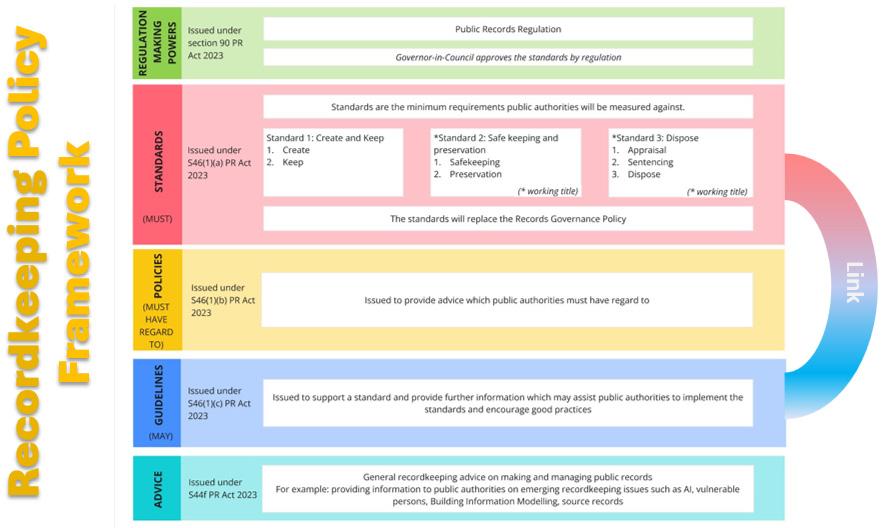
Dr Rose Barrowcliffe, QSA’s former First Nations Archives Advisor, said ‘Aboriginal and Torres Strait Islander people have long been the subject of the archive but have rarely had a voice in the decisions that affect us and our records.’
‘We have been able to make significant changes that have supported the rights of Aboriginal and Torres Strait Islander peoples when we have been involved.’
The new Public Records Act 2023 includes principles that recognise the special interests of Aboriginal and Torres Strait Islander people in how records are created, managed, and accessed, reflecting the Queensland Government’s commitment to inclusivity, cultural preservation, and advancing truth telling and healing.
The Act also establishes a First Nation Advisory Group to provide advice to the State Archivist about creating, managing and accessing public records in a way that supports the goals of Aboriginal and Torres Strait Islander people
in matters of truth-telling, and positively impacts on culture, communities, and families.
‘These changes extend QSA’s existing commitments of its First Nations First program and reflect QSA’s commitment to the Tandanya -Adelaide Declaration,’ Ms Howard said.
Ms Howard said that QSA aims to be to be an archive that supports Aboriginal and Torres Strait Islander self-determination and embraces First Nations' worldviews, knowledge, and culture.
‘One way we’re ensuring this is to include Aboriginal and Torres Strait Islander people in decision making.’
Under the new Act, the Public Records Review Committee (PRRC), which advises the State Archivist and Minister on the administration and enforcement of the Act and reviews or makes decisions on specific issues, will be bolstered
by the inclusion of Aboriginal and Torres Strait Islander representatives.
Ms Howard said, ‘We’re honoured to already have First Nations representation on the PRRC, and this new provision in the Act guarantees the committee benefits from Aboriginal and Torres Strait Islander perspectives into the future.’
The State Archivist said that this change is one of a suite of changes that will improve and modernise recordkeeping and information management practices throughout Queensland.
‘QSA is the lead recordkeeping authority in Queensland and manages and preserves the State’s historical collection,’ Ms Howard said.
'These changes ensure that Aboriginal and Torres Strait Islander perspectives are included in records management, that QSA is supporting public authorities in contemporary recordkeeping practices, and that the people of Queensland have access to public records, now and into the future.’
PROV is responsible for the establishment of standards for the management of public records under Section 12 of the Public Records Act 1973.
This includes the issuing of retention and disposal authorities (RDAs) to authorise the disposal of public records. Disposal is a key component of good information practice and mitigates the risk of security breaches. Regular and managed disposal reduces information management overhead, storage costs and aids in the discovery of reliable, relevant, and accurate information.
A new RDA for the Human Resources Management Function, PROS 24/03, is now available and mandatory for every agency. It replaces four functions from the PROS 07/01 RDA for Common Administrative Functions and covers employee management, health, wellbeing and safety, industrial relations, staff development and volunteer management. A linking table connecting the superseded classes from PROS 07/01 to their replacements in PROS 24/03 is also available. The table includes resentencing advice and a glossary. Disposal of public
records identified in this Authority must also be undertaken in accordance with the requirements of the Disposal Standard.
The Human Resources RDA and its linking table can be found on our website: https://prov.vic.gov. au/recordkeeping-government/ document-library/pros-2403-humanresources-management-function
The RDA has also been sent to the heads of all Victorian public offices including local government, along with the new Operational Management Standard which was the focus of PROV’s update in the June edition of iQ.

The Office of the Australian Information Commissioner (OAIC) recently welcomed the first reforms to the Privacy Act 1988 stating “While there is more to be done and further reform is urgent, the first tranche of reforms to the Privacy Act 1988 are an important first step in strengthening Australia’s privacy framework and providing real benefits for the community”.
THE IQ EDITOR ASKED PRIVACY COMMISSIONER KIND TO EXPLAIN THE CHANGES FURTHER.
iQ: What are the key measures in the Privacy and Other Legislation Amendment Bill 2024?
The Privacy and Other Legislation Amendment Bill 2024 (the Bill) would enact a first tranche of reforms to implement 23 of the 25 proposals that were ‘agreed’ by the Government in its Response to the Privacy Act Review. Those measures include: Development of a Children’s Online Privacy Code by the OAIC to better protect children from online privacy harms Requiring entities to include information in privacy policies about automated decisions that significantly affect the rights or interests of an individual Clarifying that reasonable steps to protect information in APP 11 includes technical and organisational measures
· Enhanced enforcement powers for the Australian Information Commissioner including new civil penalty provisions.
The Bill would also introduce a new statutory tort for serious invasions of privacy and new criminal offences in the Criminal Code Act 1995 in relation to the malicious release of personal data online (known as ‘doxxing’).
The Government has stated that it will continue to develop a second tranche of privacy reform for targeted consultation over the coming months. Those reforms are expected to include the proposals that were ‘agreed-in-principle’ in the Government Response to the Privacy Act Review.
Can you explain the new penalties for non-compliance with the Privacy Act?
Currently, the Commissioner may apply to the Federal Courts for an order that an entity pay the Commonwealth a penalty for ‘serious and repeated’ interferences with privacy (s 13G of the Privacy Act).
The Bill would introduce a new tiered civil penalty regime, which will provide the Commissioner with more enforcement options to deter non-compliance and ensure penalties are appropriately tailored to the seriousness of the contravention. The new penalties seek to address a gap in enforcement where previously the Commissioner was only able to seek civil penalties for the most egregious privacy breaches. The Bill would:
Remove the ‘repeated’ element from the existing civil penalty provision in s 13G of the Privacy Act so that it applies to ‘serious’ interferences with privacy and introduce factors which the court may have regard to in determining whether an interference is serious (for example, the number of individuals affected, the sensitivity of the personal information, whether children or people experiencing vulnerability were affected etc). The maximum penalty has not changed which is up to $50 million, or potentially more based on turnover or benefit from the breach
Introduce a new mid-tier civil penalty for interferences with privacy that do not meet the ‘serious’ threshold. The maximum penalty would be $10,000 penalty units for bodies corporate ($3.3 million)

"The OAIC’s regulatory approach uses both encouragement and deterrence to promote and protect privacy and information access rights. The Privacy Act provides a range of regulatory powers (not just civil penalties) that range from less serious to more serious regulatory action."
Introduce a lower-level civil penalty with attached infringement notice powers for administrative breaches of the APPs and non-compliant data breach statements. This would enable the Commissioner to issue infringement notices for breaches of the Act that can be easily established, such as an entity failing to have a privacy policy (APP 1.3) or not including the required information in a privacy policy (APP 1.4). The infringement notice amount is 60 penalty units for bodies corporate ($19,800) and 200 penalty units for publicly listed corporations ($66,000). The maximum penalty for breach of the civil penalty provision is 1000 penalty units ($330,000).
The OAIC’s regulatory approach uses both encouragement and deterrence to promote and protect privacy and information access rights. The Privacy Act provides a range of regulatory powers (not just civil penalties) that range from less serious to more serious regulatory action.
The OAIC takes regulatory action to encourage and support compliance by regulated entities and to address high-risk matters with the greatest potential for harm in consistent, transparent and proportionate manner. The OAIC will be more likely to take regulatory action in response to issues:
• that create a risk of substantial harm to individuals and the community, especially to vulnerable people and groups
• that concern systemic harms or contraventions
• where our action is likely to change sectoral or market practices, or have an educative or deterrent effect
• that are subject to significant public interest or concern
• where our action will help clarify aspects of policy or law, especially newer provisions of the Acts we administer. More information can be found in the OAIC’s Corporate Plan 2024-25, Privacy Regulatory Action Policy and Guide To Privacy Regulatory Action
The most substantive change to the APPs introduced by this Bill are the new requirements for entities to include certain information in privacy policies about automated decisions that significantly affect the rights or interests of an individual. Organisations covered by the Privacy Act should identify and review any automated decision-making processes that may affect the rights or interests of an individual, and update their privacy policies accordingly.
The Bill would also provide the Commissioner with a greater range of enforcement powers so businesses should ensure they are complying with their existing obligations under the Privacy Act and the APPs. The OAIC has a range of guidance on its website to support organisations to comply with their privacy obligations.
More broadly, the anticipated reforms in tranche 2 would build upon and enhance the existing privacy framework. For organisations doing privacy well now, the tranche 2 reforms will require a simple uplift. For organisations that may need to uplift their compliance, the work needs to start now. Organisations should go back to information governance basics: know what you hold, know where it is, and know how it is protected.
Thanks to Privacy Commissioner Kind for her thoughtful insights about these important privacy reforms. More information about protecting personal information, resolving privacy complaints and handling data breaches or to better understand your rights and protections under the updated Privacy Act can be found at Privacy | OAIC Visit www.oaic.gov.au/privacy/privacylegislation/the-privacy-act
Organisations covered by the Privacy Act should identify and review any automated decision-making processes that may affect the rights or interests of an individual, and update their privacy policies accordingly.

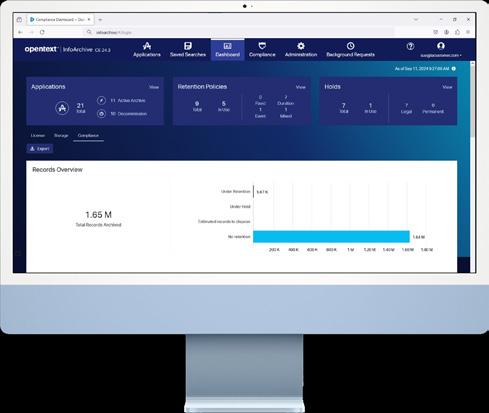
Over two-thirds of organizations plan to increase their cloud computing spending in 20241 . However, any cloud migration is enormously complex, so it’s essential to find solutions to simplify the task ahead with each application your organisation is migrating.
OpenText™ InfoArchive is purpose-built to address these challenges head-on. InfoArchive is a direct response to an organisation’s need to keep migration costs and project timelines to a minimum, simplify infrastructure, and manage long-term compliance and data access requirements.
Here are some common roadblocks posed by cloud migrations and how OpenText InfoArchive addresses each:
Not all applications can be migrated effectively or at all. Applications built on Visual Basic, older multi-tier architectures or even mainframes may be difficult to transfer to the cloud due to antiquated environmental assumptions or licensing issues. If these applications are not accumulating or processing data, InfoArchive can help you retire them and archive the data while providing search, viewing, security, storage, and compliance for this data.
Cost to maintain scalability and performance. Many existing applications may have scalability and performance characteristics that are unnecessarily costly as they don’t efficiently take advantage of cloud services. InfoArchive is designed expressly to exploit scalable, distributed cloud architectures and is integrated with native cloud databases and storage services. It scales resources in real-time, as necessary, to provide the most efficient use of computing and storage costs going forward.
Security requirements may be impossible to resolve. Due to limitations in the architecture, data security requirements may prevent legacy applications or data from being moved to the cloud. InfoArchive is a modern, cloud-first architecture that meets stringent security requirements and can encrypt data and content with a customer-managed key.
Transitioning dormant, businesscomplete data into modern cloud applications is expensive. Cloud applications may charge hefty fees for live data in applications no longer in use. InfoArchive can take on this dormant data’s long-term retention and legal hold requirements so that only active data is transferred to updated cloud alternatives. Regulatory Compliance. Data retention, data sovereignty, privacy, legal hold, and
security requirements evolve regularly and can create complexities for governance and IT that are struggling to comply. InfoArchive is designed with flexible data compliance for both structured and unstructured data that eases the load and provides the yearover-year flexibility necessary to keep up with changing requirements.
Skill gaps. Legacy applications often require highly specialized knowledge after retirement, even if virtualized in the cloud. These systems require maintenance, upgrades, and specialty user support each year. Maintaining this expert knowledge rather than shifting resources to active systems is a huge drain on IT budgets. InfoArchive consolidates and simplifies the infrastructure and usage of this data into a single platform with longevity, freeing resources to learn and support forwardlooking applications.
Migrate legacy application data to the cloud with confidence. Scan the QR code to learn more about InfoArchive and download the eBook: Modernise information archiving and simplify data compliance.
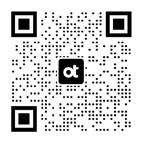
1. 451 Research, Posey, M., Public cloud budget expansion continues in 2024, 2024.

Author: Charlotte Blair
Are you at a career crossroad and looking for more? After a turbulent few years we’re now in the midst of a revolution of people seeking more purpose in their work.
Given we spend over 80,000 hours of our life at work, it’s time to follow your passion and reach your full potential. But where do you start?
In the new book, Career Unstuck (Grammar Factory $32.95), author Charlotte Blair draws upon decades of experience as a renowned ‘coaches coach’, as well as her own personal experience, to outline a clear path to career fulfilment. Whatever stage of your working life you’re at, this practical, researchdriven guide helps readers:
• Identify what’s keeping you stuck in your career
• Evaluate your mindset and beliefs
• Reimagine what work and life could be
• Discover and play to your strengths to find work you love
• Recruit a cheer squad to help you get there
Accessibly written and filled with examples and exercises, Career Unstuck empowers readers with the tools needed to break free from professional stagnation and unlock your true potential. If you want more and are ready to take the next step, this book is an essential read to help get you there.
Additional information
• A valuable post-pandemic career toolkit
• Topical release given many people are searching for a career that better matches their purpose and life goals
• Author is excellent media talent and available for interview and commentary on related topics
• Extracts and custom-articles are available for media use
Known as the coaches coach, Charlotte Blair is someone who believes in living each day to the fullest, aiming for a ten out of ten type of day, every day.
As an International Coaching Federation (ICF) Professional Certified Coach (PCC) and one of Australia’s most experienced Gallup Accredited Strengths Coaches, she loves helping people find their passion and purpose, and play to their strengths.
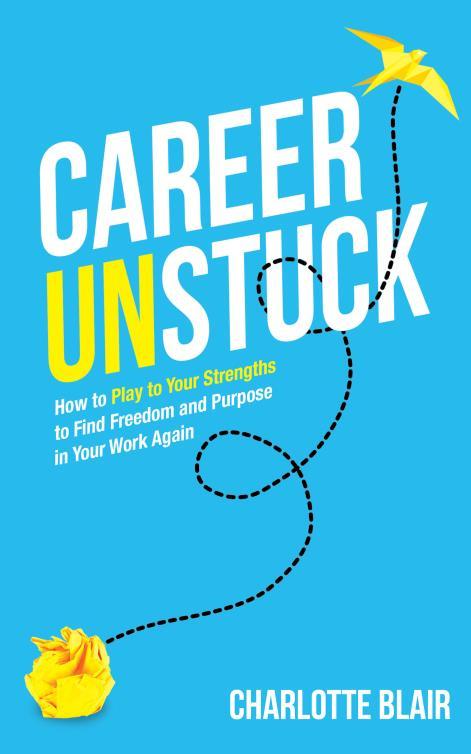

As the founder of The Strengths Partners Charlotte works with individuals, teams and organisations across the world to help them discover and use their strengths to meet their goals. She is dedicated to helping people get career unstuck and love work again, like she did herself.
RRP: AU$32.94
AUTHOR SOCIAL LINKS
• Book Weblink: https://www. careerunstuck.com.au/
• Author Weblink: https:www. thestrengthspartners.com
ISBN: 978-1-998756-39-1 P/B 978-1-998756-41-4 Hardcover 978-1-998756-40-7 eBook
• Instagram: www.instagram. com/thestrengthspartners/
• LinkedIn: https://www.linkedin. com/in/charlotteblair/
Paperback 210 pp
MORE INFORMATION
RRP: AU$32.94
Publisher: Grammar Factory
ISBN: 978-1-998756-39-1 P/B 978-1998756-41-4 Hardcover 978-1-998756-40-7 eBook Paperback 210 pp
Category: Careers
Publisher: Grammar Factory Category: Careers
Media Contact: Scott Eathorne Ph: 0418 475 801 E: scott@quikmarkmedia.com.au
Media Contact: Scott Eathorne Ph: 0418 475 801 E: scott@quikmarkmedia.com.au

As part of our ongoing commitment to environmental sustainability, RIMPA Global is excited to announce the implementation of our Paper-Lite Policy, designed to significantly reduce paper usage across all operational areas.
This policy, which applies to employees, contractors, volunteers, stakeholders, and members, will guide our transition to more efficient, digital workflows while promoting ecofriendly practices across the organisation.
A key element of this initiative is the transition of iQ Magazine to a fully digital format. Beginning in 2025, iQ will only be available electronically to members, ensuring that we minimise paper use while still delivering high-quality content. Additionally, the magazine will now be published twice per year, providing members with bumper issues biannually that offer more comprehensive insights and updates. The Paper-Lite Policy outlines several core strategies, including:
• Digital Documentation and Records Management: We will use digital platforms like SharePoint for secure record-keeping and Microsoft Teams for collaboration, moving away from physical documents
• Paperless Meetings: All meetings will adopt paperless protocols, with materials shared and accessed digitally
• Electronic Communications and Marketing: Print materials such as brochures and flyers will be replaced by digital versions, and printed publications, including the iQ Magazine, will transition to fully digital formats.
RIMPA Global is also committed to educating our community on the benefits of going paper-lite. Training sessions for staff, webinars for members, and ongoing awareness campaigns will ensure that everyone understands the advantages of reducing paper use and embracing digital alternatives.
We will further support members in transitioning to digital workflows, offering resources and guidance to make the shift as smooth as possible.
Our goal is to reduce paper usage by 80% over the next 36 months, a target that reflects our dedication to sustainability. To help meet this goal, RIMPA Global will work closely with environmentally friendly suppliers and partners who share our commitment to eco-friendly practices.
By adopting this policy, RIMPA Global is taking meaningful steps toward a greener future, while continuing to offer innovative, member-focused solutions. We are confident that the transition to a paper-lite environment will not only benefit the planet but will also enhance operational efficiency and create a more streamlined experience for our members.
We invite members to join us on this journey towards sustainability. Together, we can make a positive impact—one paperless step at a time.

RIMPA Global’s new Management System of Records Certification Scheme (MSRS) aligns with ISO 30301 to elevate audit standards in records management. It addresses modern digital challenges, enhances audit consistency, and ensures global and local compliance, offering professionals and organisations a competitive edge while securing the future of records management.
As the peak industry body for records and information management, RIMPA Global has dedicated over 50 years to promoting excellence and setting high standards within the profession. In today’s rapidly evolving digital landscape, these standards have never been more important. To keep pace with new challenges such as digital transformation, cloud storage, AI integration, and increasingly stringent regulatory requirements, RIMPA Global is introducing a ground-breaking initiative: the Management System of Records Certification Scheme (MSRS). This certification scheme is designed to establish a global benchmark for the management of records systems, offering organisations and professionals the tools to ensure secure, compliant, and resilient practices. Based on the ISO 30301 standard for management systems for records and incorporating ISO 15489 requirements, the MSRS provides a comprehensive framework for assessing records
management practices, ensuring that systems meet current needs and future demands. At the core of the certification is a robust audit process that integrates both traditional and modern records management practices.
The records management landscape has shifted dramatically over the last decade. While foundational principles remain constant, the tools and technologies we rely on are rapidly changing. This evolution has introduced new complexities, particularly around ensuring that records systems are not only secure but also capable of handling the future’s unpredictable demands. Existing certification programs, such as the ISO 9000 series, don’t fully address these complexities, making the MSRS an essential step forward.
The MSRS will serve as a crucial quality assurance tool, not just for organisations, but for auditors as well. The scheme helps to ensure that the professionals tasked with managing and auditing records systems are equipped with the specialised knowledge needed to navigate today's digital environment.

To keep pace with new challenges such as digital transformation, cloud storage, AI integration, and increasingly stringent regulatory requirements, RIMPA Global is introducing a ground-breaking initiative: the Management System of Records Certification Scheme (MSRS).
With the complementary auditor accreditation, organisations will gain confidence in knowing that certified auditors have the skills to assess modern systems accurately and thoroughly.
A critical issue faced by the records management industry is the shortage of qualified auditors who understand both traditional and digital records management. As a result, audits can often fail to capture the nuances of today’s hybrid environments, which manage records across multiple platforms and technologies. The MSRS tackles this problem by setting clear standards for auditor training and certification, thereby improving the quality of audits across the industry.
Another challenge is the inconsistency in audit processes. Without a standardised approach, audits can vary significantly, leading to gaps in compliance and exposing organisations to unnecessary risks.
The MSRS provides a clear, consistent audit framework aligned with ISO 30301, ensuring that audits are reliable, repeatable, and aligned with international standards.
The accreditation process for auditors under the MSRS is designed to raise the bar for the industry. Auditors will undergo rigorous training and assessments, covering not only records management fundamentals but also modern audit techniques.
The goal is to create a pool of highly skilled professionals who can deliver high-quality audits that meet both international standards and the specific needs of organisations operating in complex digital environments.
The scheme offers a comprehensive training program that includes specialised modules on ISO 30301 and ISO/IEC 17021-14, ensuring that participants are well-rounded and fully equipped to assess and audit modern records systems. Accredited auditors will also benefit from continuous professional development opportunities, ensuring they remain at the forefront of industry trends and best practices.
The MSRS is not just about addressing today’s challenges; it’s about preparing our profession for the future. As we move towards a world where collaboration, data sharing, and interoperability are increasingly important, having a standardised certification scheme becomes essential. Organisations that participate in the MSRS will not only improve their compliance and audit processes but will also gain a competitive edge in an industry where trust and reliability are paramount.

"Without a standardised approach, audits can vary significantly, leading to gaps in compliance and exposing organisations to unnecessary risks. The MSRS provides a clear, consistent audit framework aligned with ISO 30301, ensuring that audits are reliable, repeatable, and aligned with international standards."

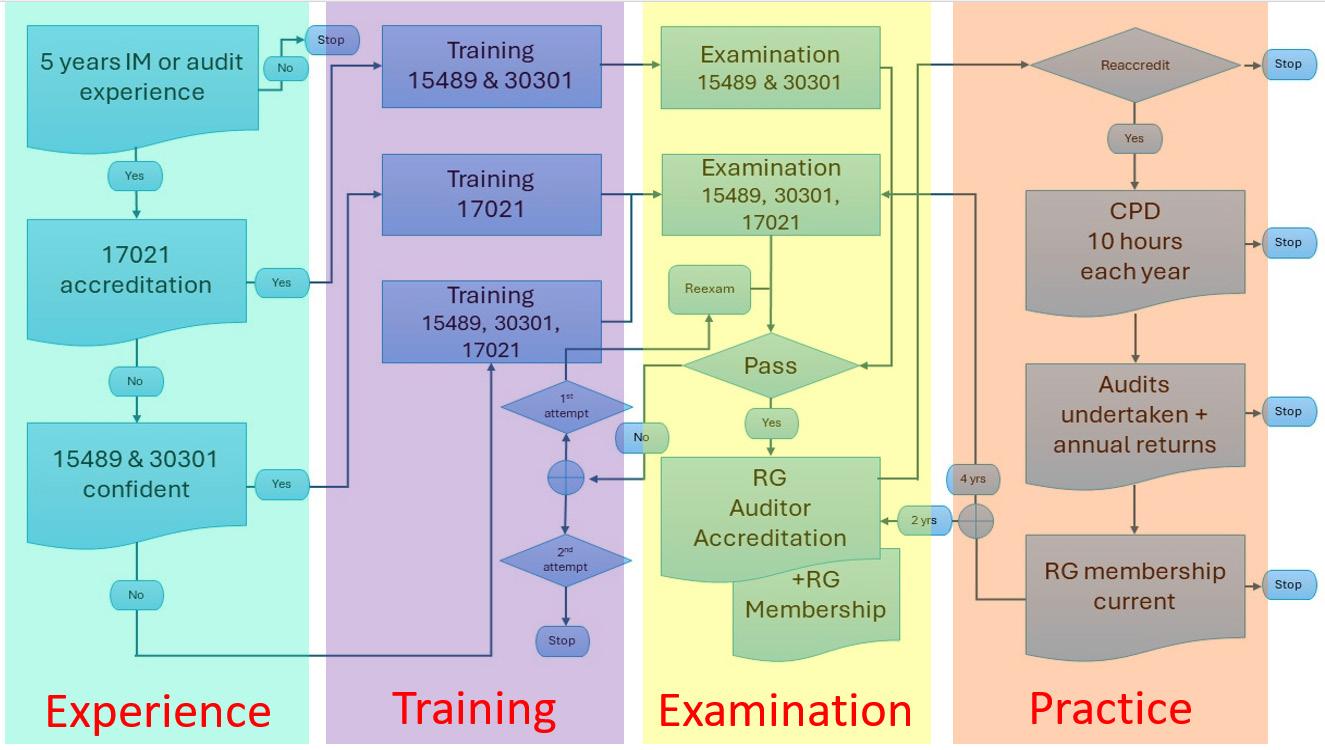
By aligning the certification with international standards and providing a robust audit methodology, the MSRS will create a level playing field for organisations and professionals alike. Whether you’re a records manager, an auditor, or an organisation looking to improve your records management practices, this certification will provide the tools you need to excel.
The launch of the MSRS marks a significant milestone in the records management industry, and now is the time to get involved. RIMPA Global is working with select practitioners and organisations to pilot the scheme. This pilot is a unique opportunity to shape the future of records management by providing feedback and contributing to the development of a globally recognised standard.
If you’re a records management professional, consider applying for the auditor accreditation and become part of the solution to the industry’s most pressing challenges. Organisations can also start preparing for the MSRS by reviewing their current practices and planning to incorporate the new audit standards.
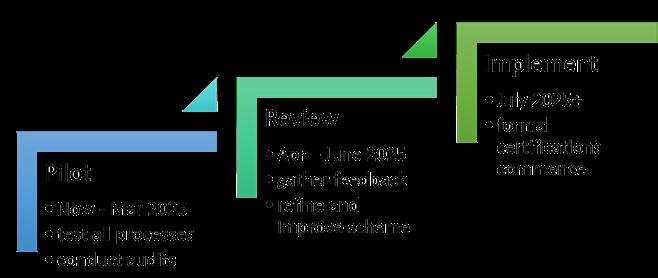
The MSRS is more than just a certification—it’s a transformative tool that will elevate the standards of records management across the globe. By participating in this scheme, you’ll not only improve your practices but also contribute to the future-proofing of our profession.
Together, we can ensure that the records management industry remains strong, resilient, and trusted for years to come. Get involved today and be part of the future of records management.

• Comprehensive Online Courses: Access a wide range of courses tailored to all levels of experience.
• Flexible Learning: Study at your own pace, anywhere, anytime.
• Expert Instructors: Learn from industry leaders and gain valuable insights.
• Job Listings: Exclusive access to job postings within the RIMPA Global network.
• Career Resources: Tools and advice to help you advance your career.
• Networking Opportunities: Connect with potential employers and industry professionals.
• Data Security Guidelines: Stay informed about the latest best practices in data protection.
• Compliance Support: Ensure your organization meets regulatory requirements.
• Risk Management Tools: Access resources to help mitigate data-related risks.
RIMPA MILA (Managing Information Legislation Australia)
• Streamlined Compliance: Simplify your compliance efforts with easy access to relevant legislation.
• Risk Minimisation: Reduce the risk of non-compliance with comprehensive and up-to-date information.
• Competitive Edge: Enhance your business's competitive advantage by ensuring efficient compliance management.
• Interactive Sessions: Participate in hands-on workshops to develop practical skills.
• Industry Experts: Learn from the best in the field through engaging and informative sessions.
• Networking: Build connections with fellow professionals and expand your network.
We invite all members and prospective members to take advantage of these fantastic benefits. Join RIMPA Global today and take your career to the next level!
At RIMPA Global, we're dedicated to empowering our members with the tools and resources they need to excel in the world of records and information management. Our new suite of member benefits is designed to support your professional growth and success. Become a member today.
We are thrilled to announce the membership status upgrades celebrated at the RIMPA Live Convention closing lunch. These upgrades honour the professional growth of our members, recognising their expertise and dedication to advancing the industry.
Congratulations to:
Associate Members:
• Sarah Eddy
• Douglas Kemp
• James Price
• Sharon Ipsen
• Pinakeen Shah
• Cameron Neal
Associate Members have at least 3 years industry experience and have mastered 11 information management and 2 data skills at the practitioner level.
Statusreflectupgrades each member's tocommitmentongoing professional excellence.
• Sheryl Mapp
• Carolyn Hartman
Chartered Members have over 5 years of experience, showcasing their expertise in 12 information management and 4 data skill sets at the management level.





























These members have demonstrated their proficiency through RIMPA Global’s capability framework, based on the 18 essential information management skills and 8 key data skills identified by National Archives Australia.
We encourage all members to continue pursuing growth and applying for status upgrades as their careers advance.










































































































































To learn more about how you can upgrade your status, visit









































































Due to overwhelming demand, we are thrilled to announce the early opening of two highly desired scholarships in 2025. This is your chance to shine and advance your professional development in records and information management.
Ready to get involved in the 2025 Scholarship Program?
We know our members are passionate about continuous learning and to give you ample time to prepare, we are opening the scholarship nominations earlier than ever. Mark your calendars— on Wednesday, 15th January 2025, you’ll have the opportunity to apply for two scholarships designed to enhance your career prospects.
Whether you’re looking to broaden your knowledge, engage with industry leaders or earn a professional qualification, these scholarships are the gateway to achieving your goals. Don’t miss out on these fantastic opportunities:
LISA MCDONOUGH ROADSHOW SCHOLARSHIP
This scholarship is ideal for members who have yet to attend a RIMPA Roadshow, providing a perfect introduction to the event’s invaluable insights. The scholarship covers flights, two nights’ accommodation, and registration for the nearest Roadshow, with a total value of up to $2,000.
The RIMPA Roadshow is more than just an educational event—it’s an opportunity to stay up to date with cuttingedge information management trends, meet peers, and connect with industry experts. Whether you're looking to network, build relationships, or spark new professional collaborations, the Roadshow is the place to be. This scholarship ensures that distance is no longer a barrier, as it’s only available to members living more than 200km away from their closest Roadshow location.
Here’s a Sneak Peek at Our 2025 Roadshow Locations:
1. Wellington: Thursday, 12 June 2025

2. Sydney: Thursday, 3 July 2025
3. Brisbane: Thursday, 17 July 2025
4. Adelaide: Thursday, 24 July 2025
5. Perth: Thursday, 31 July 2025
HARRY HAXTON CERTIFICATE III IN BUSINESS (RECORDS AND INFORMATION MANAGEMENT) SCHOLARSHIP
If you’ve been working in the industry for five years or less, this scholarship is tailor-made for you. The Harry Haxton Certificate III in Business (Records and Information Management) Scholarship covers the full registration fee for the nationally recognised Certificate III in Business (Records and Information Management), valued at up to $3,200.
But that’s not all! RIMPA Global mentors will guide you throughout your study, offering support and advice to help you achieve your qualification and boost your career.
WHAT ARE YOU WAITING FOR?
This is your opportunity to kickstart 2025 with a professional career boost! Stay tuned for more details as we approach the opening date on Wednesday, 15th January 2025. We can’t wait to see how these scholarships will help our members take their careers to the next level.
Be sure to apply The next success story we feature could be yours!

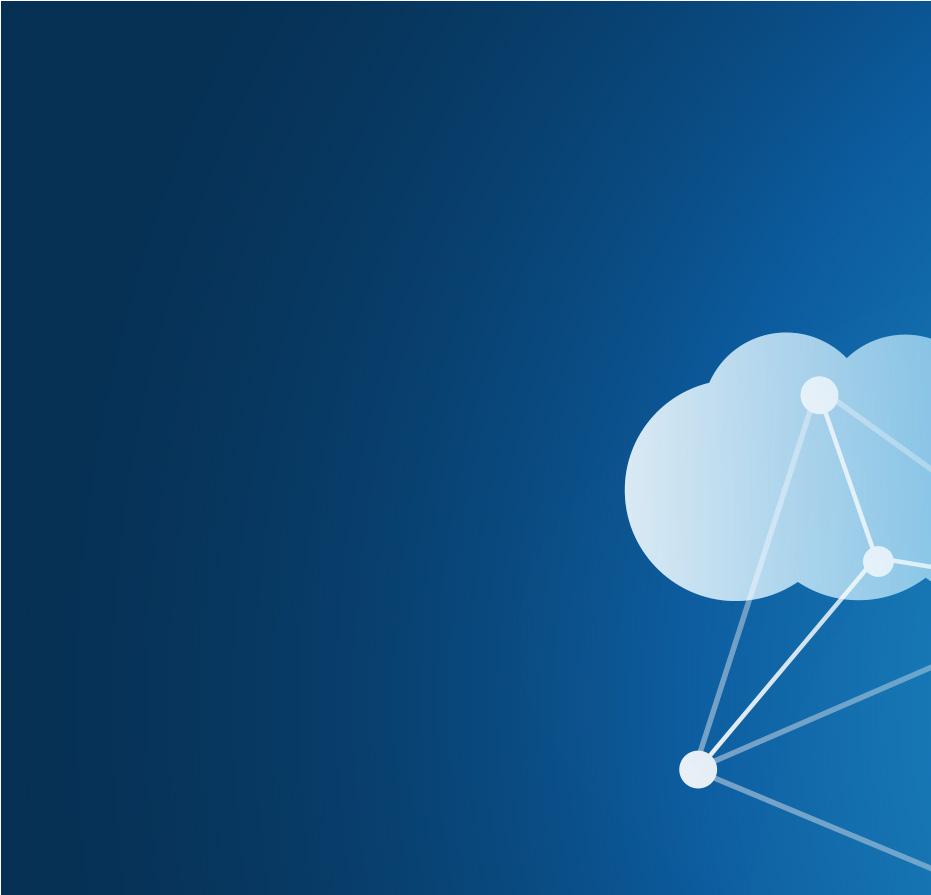
JOY SILLER LIFE ARIM



As information managers, we are passionate about improving the ways information can be captured, organised, accessed, maintained and retained. As we know, developments in digital technology have rapidly transformed the way we communicate and manage information in a way that could have only been imagined in science fiction.
In the information management profession we want more. We appear to want: state-of-the-art systems to have information systems available remotely including on our mobile devices to connect to other systems to have our internal and external stakeholders to connect where permissible the best quality images available · to make sure data and metadata are kept for as long as required as much as possible done automatically and seamlessly for us.
As Roald Dahl wrote, “Don't care how, (we) want it now.”[1]
But should we take a little more time to ‘care how’?
Like many advanced developments, while digital technology offers indisputable benefits for information management, and society generally in a great many ways, it also has a downside that we are only now realising.
To use a metaphor, are we at risk of being caught in a digital information tidal wave that is swamping the environment, but we don’t necessarily want to stop it because we’re riding on it and it’s taking us places that answer our short-term needs?
This article discusses the impacts of digital transformation of information on the environment. It is a synopsis of a more detailed research paper (in progress) that looks at two fundamental questions:
1. What is the impact of the digital information management world on the environment?
2. What can be done to mitigate any negative impact?



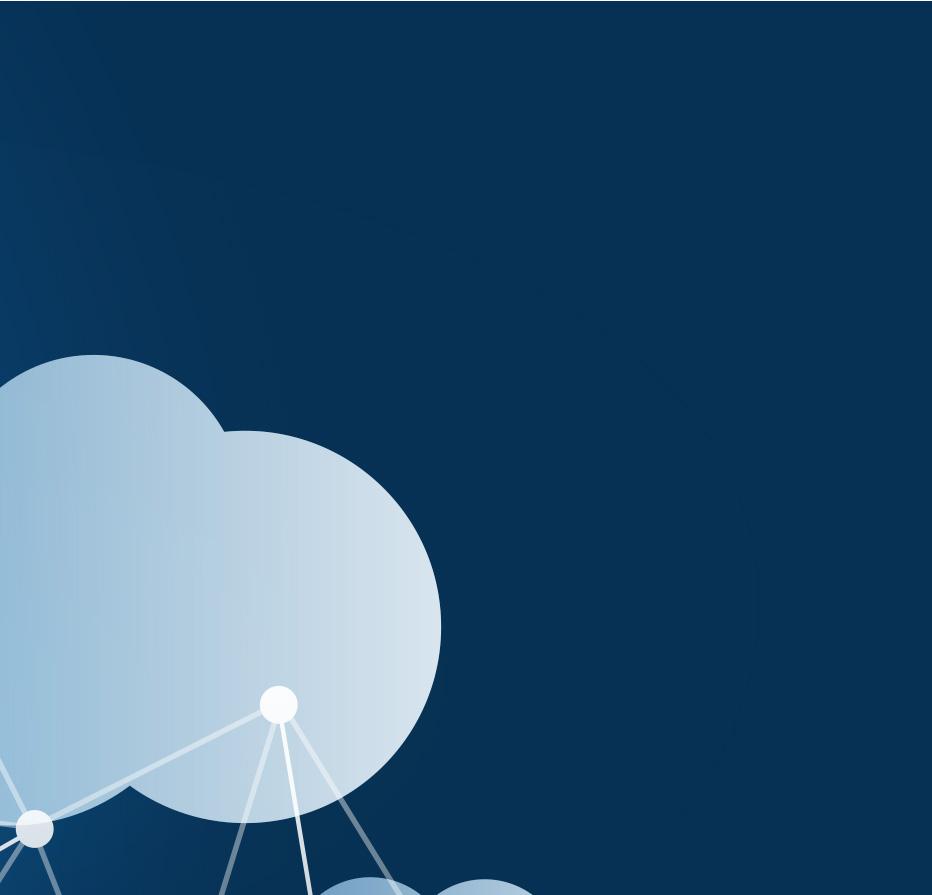

One particular author, Guillaume Pitron, is largely responsible for piquing my interest in this topic. His book The Dark Cloud: How the Digital World is Costing the Earth is a key reference source, and recommended reading for those interested in this topic.[2]
As Pitron points out, the digital world has created a reputation suggesting that it has no significant impact on the environment. An out-of-sight, out-of-mind image prevails, and in some cases, it even goes so far as to promote that it is actually saving the planet.
Companies such as Amazon, Apple and Netflix promote themselves as being ecologically responsible, and young climate activists are heavy users of digital communication (YouTube, X, etc.) whilst shunning such things as airline travel.
"An
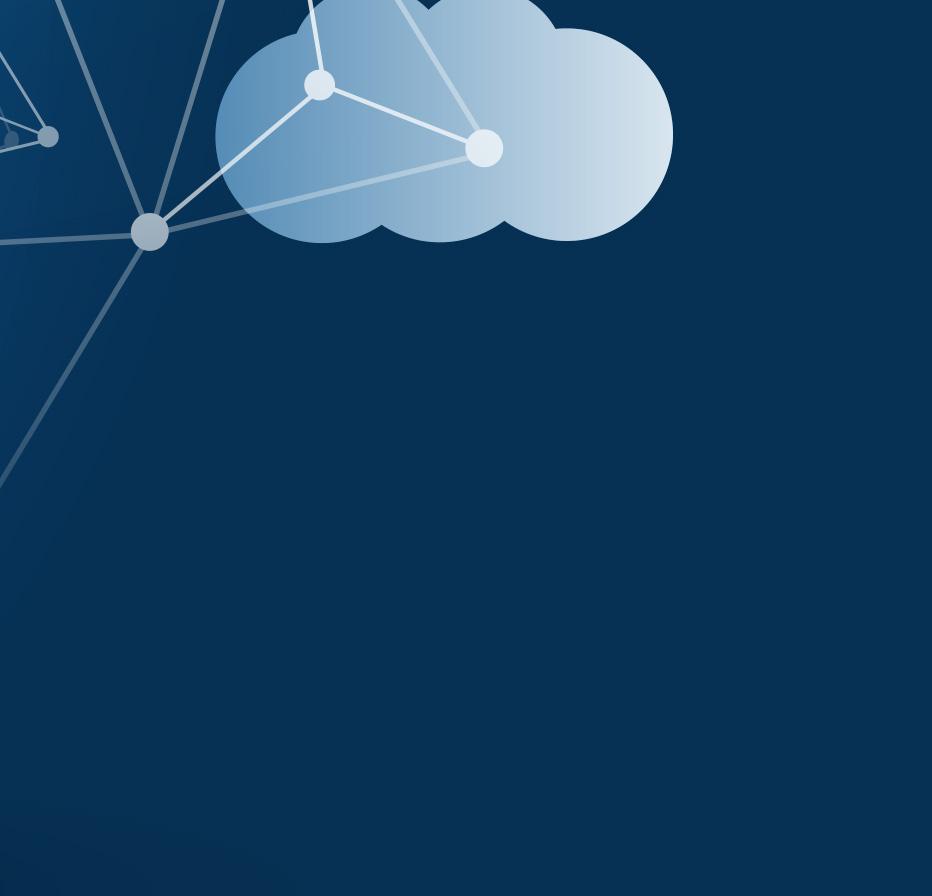
There are some alarming statistics that show our digital world, including how information is transported, stored and processed, requires a massive, energy-hungry infrastructure.
For example, it:
“...consumes enough water, material and energy to give it a footprint triple that of a country such as the UK” uses 10% of the world’s electricity produces around 4% of global carbon dioxide emissions which is “almost double that of the global civil aviation sector”. (This is estimated to be increasing by 5-7% every year.)[3]
out-of-sight, out-of-mind image prevails, and in some cases, it even goes so far as to promote that it is actually saving the planet. Companies such as Amazon, Apple and Netflix promote themselves as being ecologically responsible, and young climate activists are heavy users of digital communication (YouTube, X, etc.) whilst shunning such things as airline travel."
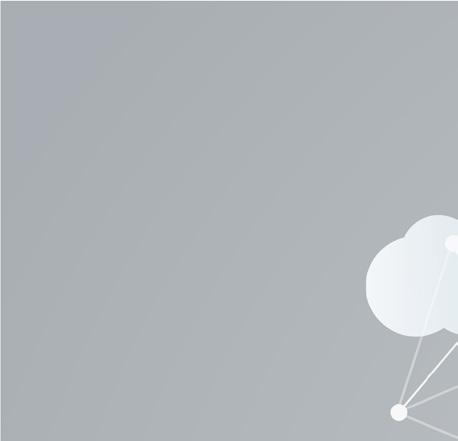

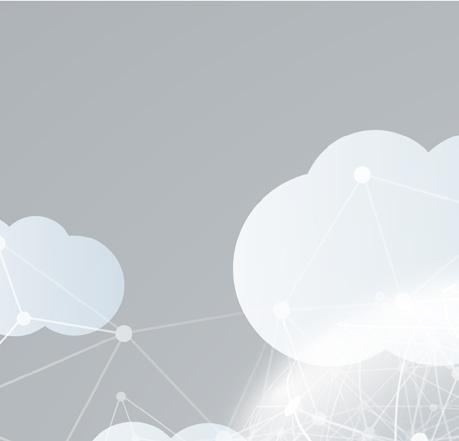



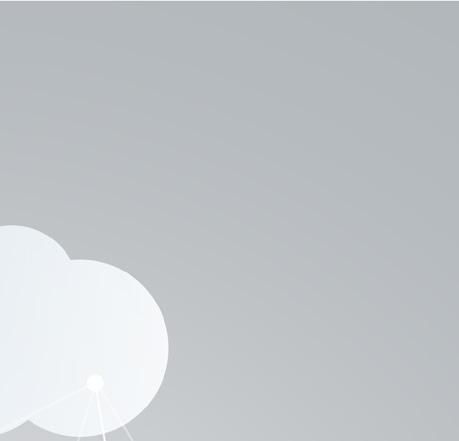
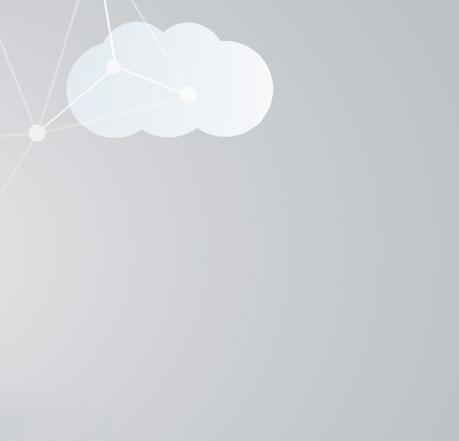
There are other stark points, including: the production of a 2 kilogram laptop requires 22 kilograms of chemicals, 244 kilograms of fuel, and 1.5 tonnes of water to name just some of the material involved. Similarly, a smartphone weighs something in the vicinity of 150 grams, yet requires 183 kilograms of raw material to produce it for a Facebook ‘like’ to reach its audience, it traverses seven layers of the internet. Remember thar every time you send a ‘like’ to someone in your office, maybe only a few floors or metres away. The signal has travelled thousands of miles and used energy as it moved! by 2025, most of us will each be responsible for about 5,000 digital interactions per day. [4] Paperless and virtual activities do not mean the reduction in physical materials that was promised. There are still cables, routers, WiFi, data centres, etc. that are required to drive it. Think about how our Teams and Zoom meetings are physically supported; the tangible infrastructure that is required is considerable. Naturally, the reliance on virtual meetings increased during the Covid-19 pandemic, but has it made us averse to face-to-face meetings?
If so, what are the environmental consequences?
Video and audio streaming create some of the biggest digital carbon footprints. They require vast amounts of energy to watch, store and transmit the content. Video streaming is thought to generate approximately 300 million tonnes of CO2 every year which is equivalent to around 1% of total global carbon emissions.[5]
The so-called ‘cloud’ conjures up an image of something light and fluffy. In fact, cloud data centres consist of “coaxial cables, fiber optic tubes, cellular towers, air conditioners, power distribution units, transformers, water pipes, computer servers, and more”.[6] Consequently, it consumes huge amounts of resources both to produce and run it.
Of course, the use of cloud services is now ubiquitous.
As individuals, we are likely to use 100 data centres daily throughout the world.[7] They are the ‘beating heart’ of our digitally-connected world, yet we are largely oblivious to them.
We have so much data and digital documentation that it has become almost impossible for the average organisation to store it. By 2025, it is estimated that 80% of companies will no longer have their own data centres; instead content will have moved to cloud services.[8]
"In addition to emissions, considerable ICT componentry is needed to power AI. There is a raw materials factor with componentry and, unfortunately, when it becomes outdated or malfunctions, it is discarded and adds to ever-increasing levels of "technotrash". This creates more detrimental effects on the environment."
Our collection and use of information is multiplying the need for such data centres and appropriate sites for these centres. Lo and behold, reality or a pipedream, the moon is under consideration as a potential site – nice and cool and no pesky residential or farming areas to worry about! [9]
The concept of artificial intelligence has been around for a long time. From an information management perspective, we are particularly interested in the rapid development of Generative AI (which refers to “any AI system whose primary function is to generate content”). Large Language Models (LLMs) such as ChatGPT are part of this.[10]
LLMs must be ‘trained’ using many parameters and vast amounts of data. Therein lies a key environmental concern.
One study found that training an AI model using an enhanced approach emitted carbon equivalent to 315 trans-American flights.[11] Another states that the carbon released into the atmosphere while training huge AI models has been doubling every 3.4 months since 2012.[12] If this is correct, where will we be as such systems are adopted more and more? Australia’s Chief Scientist has stated that if we keep using so much energy for AI, there won’t be enough energy left for anything else.[13]
In addition to emissions, considerable ICT componentry is needed to power AI. There is a raw materials factor with componentry and, unfortunately, when it becomes outdated or malfunctions, it is discarded and adds to everincreasing levels of "technotrash". This creates more detrimental effects on the environment.[14]
If LLMs are particularly energy-intensive, are there alternatives? One option to consider is Small Language Models (SLMs). In comparison to LLMs, they have lower computational requirements, are task-specific, use fewer parameters, are trained on more focused datasets and can operate within an organisation’s premises. In other words, they are more energy efficient and may also be more reliable.[15] [16]
It is not surprising that, given its powerful ability, some see artificial intelligence as an environmental saviour that will “improve environmental governance, safety and environmental risk reduction while focusing on information management for decision making”. Of course, its use must be off-set or combined with green ICT initiatives.[17] This could include considering SLMs options and reduced use of LLMs.
These are areas of information management in which we should all be actively involved when it comes to environmentally sustainable practices. We need to consider the whole lifecycle of digital technologies that we use for our digital content – raw materials in devices and infrastructure (computers, networks, data centres, etc.), but also our methodologies and standards.
Appraisal and de-duplication of digital content can be a resource-intensive exercise. Appraisal techniques may therefore opt for ways to minimise staff time; after all digital storage might be more readily available and cheaper than staff. Why not just keep all copies! Of course, this approach is unlikely to result in the retention of our most valuable content. Could we apply better value-based appraisal techniques that could determine whether the content is worthy of resource-intensive preservation, minimal preservation or somewhere in between?
In addition, our current preservation standards tend to aim for the best rather than adequate. Technology now allows for a much higher quality of digital content, especially audiovisual material. Digitising a single minute of film in an uncompressed format at 2K resolution can result in a file of up to 26 gigabytes; at 4K resolution, the file size increases to potentially more than 100 gigabytes.[18] Therefore, the question we should ask is “Is it necessary to keep all digital content at the highest quality?”
The environmental impact of a product (in this case the product is digital content) can be found through a lifecycle assessment (in accordance with ISO 14040 Life Cycle Assessment). Unfortunately, many organisations may be more concerned with how much digitisation impacts a budget bottomline rather than the environment. However, it could be an interesting project for an industry body, university or cultural institution in order to reassess the need for standards that aim for “perfect”.
One interesting research project from around ten years ago focussed on the “development of a low power ICT that will automatically appraise, select and preserve or permanently delete data and records” [19]. A ‘Green Archiving Model’ that combines Information Value Chain (IVC) theory, Archival Retention Levels (ARLs), and Green ICT practices was proposed and tested. (Green ICT practices include reducing energy consumption, refurbishment/reuse/proper disposal of equipment, environmentally efficient and sound design, and choosing green manufacturing). It is not known how far this proposed model progressed. Ironically, we now speak of using AI to automate appraisal and disposal (Catch-22 comes to mind)! Perhaps SLMs are a solution.
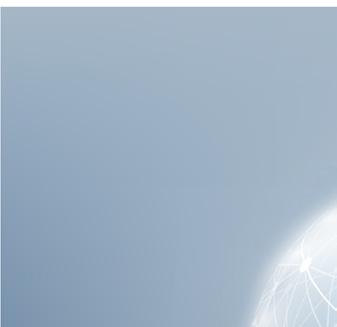

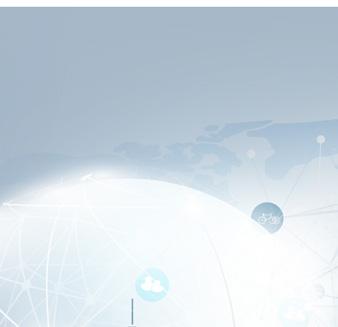

What can we, as information managers and good global citizens, do? Start with changes that we have some control over.
Specifically:
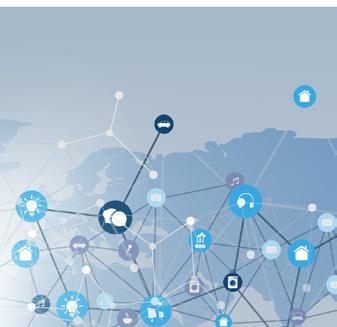
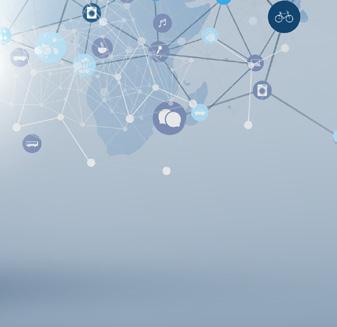
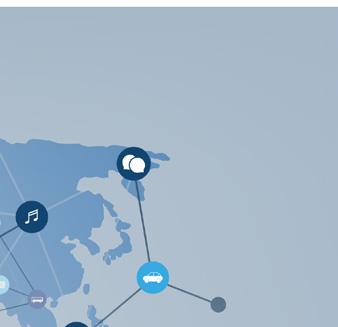
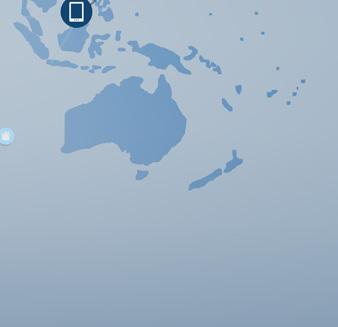
Alternatively, we can choose to do nothing and pretend that it’s somebody else’s problem.

· implement digital disposal immediately. The retention of superfluous information is an environmental liability as well as presenting financial and security risks reduce duplication spread the message throughout our organisations (particularly at the time of annual reporting) and information management circles. And more generally: change email habits (e.g. appraise older emails regularly and unsubscribe from unwanted newsletters) limit video streaming and the downloading of large content where possible unplug devices when not in use (where permitted) make devices and equipment last as long as possible, dispose of old devices correctly, and purchase refurbished or recycled devices (e.g. mobile phones) store and process data locally wherever possible and limit cloud usage look at options for ‘greener’ cloud providers. (These last few points are probably a discussion to be had with ICT managers).
The intention of this article is not to simply paint a bleak outlook for our environment, but rather to question what we can do as a profession and to raise awareness of the issue within our organisations and with our industry colleagues.
There is no going back (unless we have another Dark Age) because the technology genie is well and truly out of the bottle, from both end user and company economic perspectives. Could we opt for ‘good’ rather than ‘perfect’ in an effort to help the environment for just a little longer? Perhaps we need to think about this every time we interact with ICT, just as we now think every time we use plastic.
We need to continue the conversation on how information can be efficiently processed and quantities reduced, and at the same time, how we can sustainably preserve information of ongoing value.

Joy has over thirty-five years’ experience in the information management profession and is the Managing Director of Siller Systems Administration (SSA). She has held this role almost thirty years. She has had a long-standing relationship with professional records and information management associations, is a well-known presenter, expert advisor and has assisted with the development of training curricula and courses within tertiary institutions.
References [1] Dahl, Roald. I Want It Now (poem – publication date unknown) [2] Pitron, Guillaume. The Dark Cloud: How the Digital World is Costing the Earth, Scribe Publications, July 2023 [3] Pitron, pp 6-7, 26 [4] Pitron, pp.37, 61 [5] Brunton, H. “Digital carbon footprint: the environmental impact of digital transformation”, The Knowledge Exchange, January 2022 [6] Monserrate, S. “The Cloud Is Material: On the Environmental Impacts of Computation and Data Storage”, MIT Publishing, January, 2022 [7] Pitron. P.77 [8] Pitron, p.49 [9] Komando, Kim, How NASA plans to backup data on lunar soil, September 25, 2023 [10] Toner, H. “What Are Generative AI, Large Language Models, and Foundation Models?”, Center for Security and Emerging Technology, May, 2023 [11] Strubell, E et al. “Energy and Policy Considerations for Deep Learning in NLP”, Proceedings of the 57th Annual Meeting of the Association for Computational Linguistics, Florence, Italy, July 28 - August 2, 2019 [12] Okengwu U. A. et al “Environmental and Ethical Negative Implications of AI in Agriculture and Proposed Mitigation Measures”, Scientia Africana, Vol. 22 (No. 1), April, 2023 [13] ABC, Q&A, 18th March 2024 [14] Okengwu U. A et al [15] Lee, L. “Tiny Titans: How Small Language Models Outperform LLMs for Less”, The 360 Blog, June, 2024 [16] Nucci, A. “What are Small Language Models (SMLs)?” AISERA Blog (undated) [17] Dwivedi, Y et al, “Climate change and COP26: Are digital technologies and information management part of the problem or the solution? An editorial reflection and call to action”, International Journal of Information Management, Volume 63, April 2022 [18] Pendergrass, Keith L.; Sampson, Walker; Walsh, Tim; and Alagna, Laura. “Toward Environmentally Sustainable Digital Preservation”, The American Archivist, Vol 82, No.1, Spring/Summer 2019 [19] van Bussel G., Smit N. and van de Pas J. “Digital Archiving, Green IT and Environment. Deleting Data to Manage Critical Effects of the Data Deluge” The Electronic Journal Information Systems Evaluation Volume 18 Issue 2 2015, available online at www.ejise.com
Effective document management relies on secure offsite document storage and regular professional records sentencing. This not only safeguards sensitive information from unauthorised access and data breaches but ensures timely disposal of outdated documents, reducing clutter and legal risk.
Benefits:
• Enhanced operational efficiency
• Improved data security

• Reduced risk exposure
• Simplified document retrieval and access
Talk to our document storage team for objective and independent advice.

‘What are the perks and benefits?’ When I hear this early in an interview, and I often do, the hackles on my back go up. Alarm bells ring, ‘Potential trouble on the horizon with this hire’, and I all but quickly shut down the interview. Then I calm down, reminding myself; that this is the new working world.
The skills crisis brought us here. Emerging from the pandemic, it was an epic fight for talent. Salaries surged, hybrid everything was on offer, workcations, sign-on bonuses, compressed work weeks, reduced hours, bringing your dog, cat, anything, oh and your ‘whole self’ to work. It was reactive, too much and without boundaries.
We all did it. Every manager and leader, like a gun to our heads, for the alternative was potentially no hires and no business. The employer-employee power shift arose, and with it, the dark side to all the perks and benefits:
In the tactical rush to serve our employees, some strategies are being undermined. Any perk and benefit should align with what the organisation stands for and in achieving its mission. A business principle of ‘customer obsession’ while offering employees a 4-day working week perk, surely has your customer impacted? No longer your ‘obsession’, they are. Ironically, the same employees hold organisations acutely accountable for ‘living’ corporate values and so we have a dilemma.
We have our corporate values, and ideally, employee values are in sync. That is where the magic lies in any workplace culture. Flexible working is appealing to most employees and acts as a strong lure. Corporately, we say the purpose is to reduce stress and achieve a better work-life balance, but does it?
Really, we are doing it because we don’t have much choice. We haven’t put in place the right structures and policies to support such a monumental shift away from how we used to work. We think we have, but we haven’t. Suddenly, the 8-hour day that was fought hard and strong for, post-industrial revolution is out the window. Instead, we work 10-plus hour days for a compressed work week or stretch our job over 7 days to fit in with life’s priorities. Reports show the US, Canada and East Asia tied for the highest level of stress at 52% and Australia and New Zealand had the second highest at 47%. Now what? Add in the ‘right to disconnect’, and it’s all a bit confusing. How does that work when we connect at all hours?

Organisationally, we refer to it as employee engagement, but let’s call it what it truly is, happiness at work. For all the perks and benefits- not that happy. Engagement levels are dropping to its lowest level in more than a decade. In America, that translates to nearly 5 million fewer employees now engaged (or happy) in their work. As for retention, one-third of new employees quit after about six months. Right back where we started, hiring and rehiring, this time let’s think carefully about what we offer.
All the perks and benefits and it’s still not enough. With falling engagement levels and retention rates, productivity is an inevitable fallout. Yet milestones must be achieved, shareholder value created, and customer deliverables met. Who carries the workload gap?
If you are lucky, it’s your manager. Does their work-life balance, and well-being not matter? It should. Over 50% of managers feel burned out, a higher number than our employees. Or is your customer the one who is paying? It’s probably both.
Employee motivators are not what they were. In 2018, a Deloitte survey found pay and a positive culture were at the top of the
wish list for Millennials and GenZ, with ‘benefits’ and ‘perks’ such as flexibility and well-being right down the list. Now, so strong are benefits like flexibility that 98% of the workforce want it and in Europe, 66% believe it should be a legal right. It might seem it is all about the perks, but that’s up to us to shift the mindset to re-engage and motivate. Select the perks and benefits that are of actual value to your employees and get rid of the token gestures. Ensure the benefits work for your organisation, fit your culture, and serve your customers. Own them. Then, put in place, the right structures to support your employees and business.

of ‘Employable – 7 Attributes to Assuring Your Working Future’ (Major Street $29.95), is the founder and managing director of EST10 – one of Sydney’s most successful recruitment agencies. For more information on how Roxanne can assist with your recruitment needs, visit www. est10.com.au
LOUISE GILBERT
Tough times are part of the deal when it comes to leading teams. Whether it’s navigating the complexities of hybrid work, managing change, or dealing with the pressure to perform under challenging circumstances, your role as a leader is to help your team stay on track and keep moving forward—without burning out.
According to Gallup's 2023 report, employee stress levels are at a record high, with 44% of global employees reporting significant stress, even as engagement levels have risen slightly. But supporting your team through tough times isn’t about pushing harder; it’s about finding the right balance. You’ve got three pedals: performance, growth, and wellbeing, and when you press the right one at the right time, you’ll help your team get through anything. Here are five key practices that will help you support your team through the ups and downs.
Tough times require a shift in mindset. When uncertainty hits, it’s easy for your team to feel overwhelmed or stuck. This is where Mindset X comes in. It’s about building the ability to adapt, to face complexity with confidence, and to lean into challenges rather than be thrown by them. When you develop Mindset X in your team, you give them the tools to experiment, try new things, and approach obstacles with curiosity. In difficult moments, it’s about saying, “What’s possible here?” rather than, “Why is this happening?” It’s this adaptability that keeps your team moving forward, no matter how rough the road gets.
In any tough period, one of the biggest issues is workload. Some of your people will feel like they’re drowning, while others might not have enough to do. That imbalance creates frustration and inefficiency. The Team Tetris practice is all about playing a game of fitting the pieces together—making sure no one is overburdened and everyone is contributing in a way that fits their capacity. This practice helps you keep the team in balance, so no one is overwhelmed, and everyone feels they’re doing their part. You keep things moving smoothly and prevent burnout from setting in.
Wellbeing often gets sacrificed when the pressure is on. But the truth is, that’s when you need to prioritize it the most. Built-in Wellbeing isn’t just about ticking the box on mental health days or offering perks. It’s about embedding wellbeing into the very way your team operates. Whether that’s through flexible work arrangements, encouraging people to take proper breaks, or just making space for conversations about how people are feeling, this practice helps your team stay strong. You can’t push the performance pedal without paying attention to wellbeing. It’s all about balance—if your people aren’t feeling good, they won’t be able to do great.
Engagement often suffers in difficult times, but without engagement, your team is running on empty. And here’s the thing: there’s no real engagement without psychological safety. Your team needs to know that it’s okay to speak up, to share ideas, and yes, to make mistakes. That’s what Powerful Engagement is all about—creating an environment where your people feel safe enough to bring their whole selves to the table. When they feel safe, they’ll stay connected to their work and to each other, even when things get tough. It’s about fostering that openness and trust that keeps the energy alive, even when stress levels are high.
When things get tough, it’s easy for your team to lose sight of why they’re doing what they’re doing. That’s where Aligned Purpose comes in. It’s your job to remind your people of the bigger picture—to connect their dayto-day work to the larger mission. Purpose gives your team direction and motivation, especially when the path forward isn’t clear. When everyone is rowing in the same direction, it makes it easier to navigate the turbulence that tough times bring. Keep your team’s purpose front and center, and you’ll keep them moving, no matter what. Supporting your team through tough times is about balance. It’s about pressing the right pedals at the right time—helping your team adapt, keeping the workload in check, building wellbeing into the way you work, fostering real engagement, and keeping your purpose in focus. By doing this, you’re setting your team up to not just survive but thrive, even in the hardest moments.

As artificial intelligence (AI), machine learning, and cognitive computing continue to evolve, understanding their distinct roles is crucial for the future of information management. Linda Shave looks at the innovations that are transforming data processing and reshaping how organisations handle and secure information, making it essential for industry professionals to adapt to this rapidly changing digital landscape.
‘’AI will be part of every industry, enhancing our abilities in ways we can’t even imagine yet’’ Jeff Bezos
Awareness and understanding of artificial intelligence varies across different segments of industry and society. For example, the terms artificial intelligence, machine learning, cognitive computing and automation are in common use. Artificial intelligence and machine learning are often combined or confused; despite machine learning being a sub-field of artificial intelligence.
Machine learning automates analytical model building using statistics, operations research and physics to find hidden insights in data. On the other hand, cognitive computing is another sub-field of artificial intelligence; the ultimate objective is for a machine to simulate and automate human processes. Cognitive technologies are products of the field of artificial intelligence, products that are able to perform tasks that only humans used to be able to do.
In the areas of information and data management the evolution of artificial intelligence, machine learning, robotic and intelligent process automation are changing forever how government and organisations collect, organise, analyse, use and secure data. Highlighting the role of artificial intelligence, machine learning, robotic and intelligent process automation
ARTIFICIAL INTELLIGENCE (AI) AND MACHINE LEARNING (ML)
Artificial Intelligence is the simulation of human intelligence or cognitive processes such as problem solving, visual perception, speech recognition and decision making by a computer system(s). Machine learning on the other hand uses sophisticated algorithms to ‘learn’ from massive volumes of ‘data’ and are used to improve the accuracy of predictive models. Depending on the nature of the business problem being addressed the more data the algorithms can access, the more they can learn and the more accurate the outcome.
The use of intelligent algorithms and machine learning is becoming an essential component of new products and services, forming part of the present-day advancements in artificial intelligence.
The term ‘Automation’ describes a wide range of technologies that reduce human intervention in processes. There are two streams, robotic process automation (RPA) and intelligent automation (IA). Both RPA and IA have the potential to make processes smarter and more efficient in very different ways. Neither RPA nor IA solutions replicate human reasoning, they only follow pre-programmed processes. Table 1 describes the differences between RPA and IA.
ROBOTIC PROCESS AUTOMATION (RPA)
In the context of business process improvement Robotic process automation (RPA) is a way to automate routine tasks that are transactional, repetitive and often rules based processes. RPA software robots, (‘bots’ or ‘machines’ for short) can interact with business applications but they must follow a highly systematic set of instructions and simple conditional logic. RPA machines are now becoming known as collaborative intelligence
COLLABORATIVE INTELLIGENCE (MACHINES AND HUMANS)
Collaborative intelligence is an emerging trend in the workforce. It is where artificial intelligence (AI) machines and humans are being combined through robotic process automation to leverage the intelligence of humans and machines to achieve a task or set of tasks.
INTELLIGENT PROCESS AUTOMATION (IPA)
In the context of business process improvement, ‘Intelligent’ automation refers to the integration of robotic and intelligent systems from various and emerging technologies, which are increasing the scope of automation beyond simple rule-based tasks. The advantages of Intelligent Automation (IA) over traditional approaches will be the capability of automating non-routine tasks that require making decisions based on systematic consideration.
Intelligent Automation (IA) is underpinned by cognitive technologies (machines) which are able to understand natural language, recognise images, and can learn from observing humans. When intelligent automation is integrated with robotic process automation and the use of powerful analytics these combined cognitive technologies will result in machines (robotic virtual agents) who are able to either directly assist people in the performance of non-routine tasks or automate these tasks entirely.
Intelligent and social robots are already widely used and can be found in Industry 5.0 technology environments such as manufacturing, engineering, energy sectors and mining. These intelligent and social robots will not only be able to directly assist people in the performance of non-routine and automated tasks but be able to take on complex tasks and manage systems at multiple levels. In some cases this will replace the need for humans in some industries.
TABLE 1 - DESCRIBING THE DIFFERENCES BETWEEN RPA AND IA
Robotic Process Automation Routine Intelligent Automation Non-Routine
Automates tasks that are routine such as systematic, repetitive, transactional, rules-based.
Automates tasks that are non-routine and require thoughtful consideration.
Is able to follow instructions. Is able to come to a conclusion.
They are software ‘robots’ that plug into, and access, existing business software
Showcasing innovative tools and platforms for information management
THE ARRIVAL OF QUANTUM INFORMATION SCIENCE (QIS)
We are entering the new chapter in the evolution of innovative tools and platforms. We are on the verge of a new era known as Quantum Information Science (QIS). Quantum information processing is the study of how information is gathered, transformed, and transmitted at the quantum level. Quantum computers, quantum communication channels, and quantum sensors are devices that can attain the ultimate limits of information processing. It is anticipated that QIS will replace the current binary digit (bit) with its quantum counterpart the quantum qubit known as Qubits.
Current binary digital bits are a string of zeros (0s) and ones (1s), such binary codes of 0s and 1s can be encoded into words, music, images, applications, documents, web browsers or databases. Qubits on the other hand can effectively be a one and a zero simultaneously and leverage the quantum properties of ‘superpositions’ and ‘entanglement’ to operate in multiple states at once.
We are now at the start of the second quantum revolution which is providing new communication systems and methods for encrypting messages and information.
Quantum computers on the other hand can be in two states at the same time, so a quantum bit (Qubit) can have three possible values a 0, 1 or 01. A 01 state is where a qubit holds both a 0 and 1 value at the same time. This has the potential for a quantum computer to not only store more information than today’s classical computer binary system, but carry out complex calculations simultaneously at much faster speeds.
What is meant by superposition?
Qubits can represent numerous possible combinations of 1 and 0s at the same time. This ability to simultaneously be in multiple states is called superposition.
What is meant by entanglement?
Generating pair of qubits that are ‘entangled’ means that two members of a pair exist in a single quantum state. Changing the state of one of the qubits (even if separated by a long distance) will instantaneously change the state of the other one in a predictable way. Adding extra qubits to a quantum computer can produce an exponential increase in its numbers and calculating ability.
We are now at the start of the second quantum revolution which is providing new communication systems and methods for encrypting messages and information. Quantum examples of use in the real world include:
• financial institutions such as Goldman Sachs are looking to use quantum algorithms to harness the power of quantum computing to help assess the markets and price financial instruments in milliseconds
• Daimler has partnerships with Google and IBM, to use quantum computing and relevant simulation techniques to research and design the next-gen batteries
• Samsung’s Galaxy A Quantum is a smartphone containing a quantum random number generator for secure encryption.
We will see the rise of innovative tools and platforms such as the use of Quantum information processing in many areas such as transport and infrastructure, health and pharmaceuticals, manufacturing, financial and insurance and government. Quantum technology will impact on almost every area of life just as the classical information technology did. As quantum technologies rapidly develop, industries will potentially be able to solve complex problems not easily achieved by classical computers.
This raises the question around preservation and archiving of quantum data. What will we need to do?
Generative AI, digital twins and digital threads will have a profound impact on the human workforce and citizens as a whole. Humans will become increasingly reliant on generative AI and the emergence of the Metaverse world. We are entering a new and fascinating stage with the advancement of artificial intelligence, cognitive computing, deep learning and the convergence between the physical and digital worlds. A world of persistent shared 3D virtual spaces linked into a perceived virtual universe. All of these advancements will entail constant challenges for new cryptograms for data security and privacy or we will be left unprotected and vulnerable.
"The metaverse is a seamless convergence of our physical and digital lives, creating a unified, virtual community where we can work, play, relax, transact and socialise."
The metaverse is a seamless convergence of our physical and digital lives, creating a unified, virtual community where we can work, play, relax, transact and socialise. An outcome of COVID-19 was the acceleration of digitisation, online engagement, communication and virtual experiences. The metaverse world continues to evolve with ‘Augmented Reality’ (AR) and ‘Virtual Reality’ (VR) headsets providing a powerful user experience.
Examples of ‘use cases’ include everything from online working to online education which can now be conducted through video calls and virtual social events. The metaverse enables people to immerse themselves into education and learning, have access to remote healthcare, government services and shopping experiences without the geographical restrictions. However, in this metaverse world which is collecting gargantuan amounts of data daily there is the potential vulnerability risks such as data privacy, user health and safety, secure identities, fraud and cybersecurity.
The question for discussion is around how will we identify what information does the business need to keep? What will be needed for preservation and archiving? How do we filter through the metaverse world data for relevance for future generations?
CASE
The following two case studies showcase the use of innovated technologies such as quantum computing and the metaverse world and the potential impact they will have on our future.
NSW GOVERNMENT ENTERING THE QUANTUM WORLD OF THE FUTURE
Business and government are taking a hybrid systems approach to solving current challenges and identifying opportunities by deploying quantum hardware to solve certain parts of problems and using classical computing to address the rest.
The NSW Government and Transport for NSW are exploring the revolutionary new field of quantum technology. The following video introduces you to Quantum Technology for NSW Transport. https://youtu.be/YtBF61wcb-o . Alternatively, you can download the Transport for NSW Quantum Technology Report Quantum Technology Future Transport Report (nsw.gov.au).
ENTER THE METAVERSE WORLD
A metaverse world is a collective virtual shared space, created by the convergence between the physical and the digital world, and the new communication patterns it creates, efficiencies and value creation activities. Further, the metaverse utilises augmented reality (AR), Internet of Things (IoT), 5G, flexible work styles, head-mounted displays (HMDs), Artificial intelligence (AI), Natural Language Processing (NLP) spatial technologies and non-fungible tokens (NFTs are non-fungible tokens which are unique cryptographic tokens that exist on a blockchain and cannot be replicated).
In the future, the metaverse will change the very existence of today’s e-commerce experience by making the virtual experience more personal, more real and more immersive. This will provide enormous economic opportunities and it is predicted by Gartner that by 2026 25% of people in the world will be using Metaverse for at least one hour a day for work, purchases, learning, social media and/or leisure. (Source: Gartner Press Release Newsroom Stamford, Conn., 7th February 2022 https://www.gartner.com/en/newsroom/pressreleases/2022-02-07-gartner-predicts-25-percent-of-people-willspend-at-least-one-hour-per-day-in-the-metaverse-by-2026).
The metaverse will become a collection of shared online worlds in which physical, augmented, and virtual spaces converge and utilises multiple technologies such as the internet, wirelessly connected sen¬sors, smart objects and GPS locators all of will be collecting gargantuan amounts of real time digital data.

The above are only a few examples of the many evolving technologies, innovative tools and platforms for information management. The above examples highlight that ‘recordkeeping’ as it is today is changing and will be something very different in the near future. By embracing automation, the records management professional will be able to adapt to the new world of working thus reducing stress, anxiety and improving ones mental health and wellbeing.
This article has touched on some of the driving forces such as the rise of quantum information processing, generative AI and the metaverse world. The above examples are two of many innovation technologies reshaping information management. And yet these two examples have the potential to challenge traditional methods of how we collect, secure, preserve and archive information assets.
I do not have the answers, but I do believe we need to start to open up the dialogue between interested parties so that information and record management professionals become part of the discussion as to how quantum information processing, generative AI and the metaverse world will be incorporated and what will the impact be on the record and information management industry.
Linda is a futurist, researcher, presenter, advisor and author who has a fascination on how evolving technologies can be used in innovated ways. Her innovation, knowledge and expertise have been nationally and internationally recognised. Amongst her numerous industry awards is the prestigious gold medal laureate for government innovation issued in Washington DC. Linda is a regular contributor to the iQ magazine, an advocate for the RIM profession and an educator who believes in lifelong learning, reskilling and upskilling the workforce for the jobs of today and tomorrow.

Desi Lorand, CEO of RIMPA’s 2024 Diamond Sponsor EXEDEE, is excited to share some of her favourite moments from Exedee’s year of RIMPA Diamond sponsorship - and also from the recent RIMPA Live 2024 conference/event held in Adelaide.
Desi was keen to share insights on the value she and Exedee have got from their first year of Diamond RIMPA sponsorship. Mainly, how enjoyable Exedee has found engaging with RIMPA’s many members and sharing their passion for accurate and accessible organisational data.
Participating in the RIMPA forum and RIMPA’s regional meetings and interacting with a broad range of RIMPA members through these channels during the year has been extremely interesting and insightful. Our sponsorship helped Exedee clearly understand what is
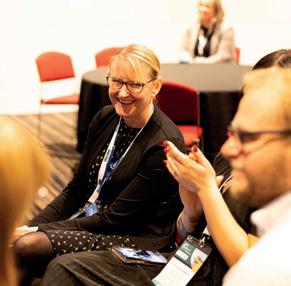
driving RIMPA Members to learn more in particular about AI and the significant benefits it brings to the Records & Information Management landscape.
Desi was particularly impressed with the RIMPA Live 2024 event, held at the Adelaide Convention Centre from 3-5 September, as were many of the attendees. In terms of the event itself, Desi said this …
“At RIMPA Live we really found ourselves immersed in and actively networking with a group of amazing and inspirational people, who are all as passionate as we are at
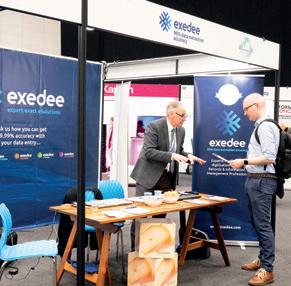
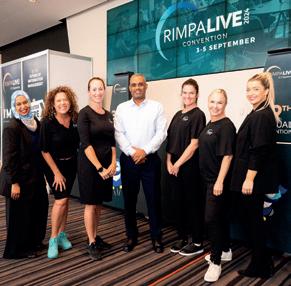
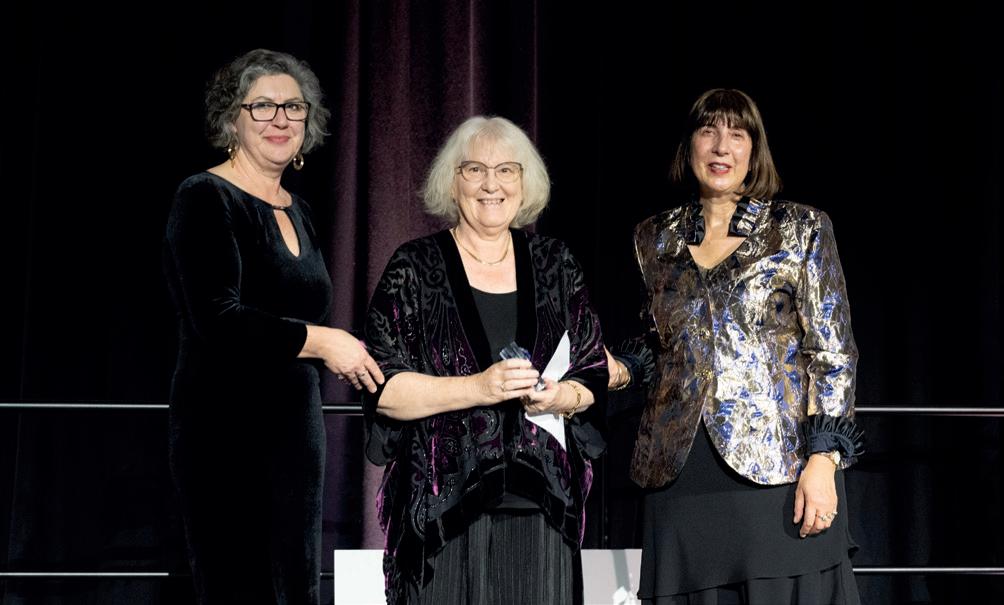
Exedee about the provision and safeguarding of accurate information. It is particularly rewarding to be able to offer to the IM community a suite of innovative software services that offer RIMPA members:
fully automated end-to-end receipt, triage and processing of emails and webforms
AI-identification of the email and attachments content
data extraction from all attachments verification of the extracted data against the organisation’s own internal data
delivery of the extracted data into multiple internal computer systems
Black-Tie Gala Dinner was a particular highlight. It was a night of elegance and celebration of the best in the industry.
I was genuinely honoured to meet a true Information Management Superhero that evening, when I presented the prestigious RIMPA Lifetime Hall of Fame Award to Professor Sue McKemmish”.

auto-registration of emails and their attachments into document management systems
ALL with >99% data accuracy
Many delegates at RIMPA Live told us that the time spent undertaking this process manually is excessive and their time could be better spent in other more valuable work.”
“Sponsoring the overall event, but especially the amazing
Professor McKemmish received her award based on her illustrious career and her significant contribution to Information Management through the Victorian Branch of RIMPA over a number of years in the late 1980’s and 1990’s. She is an Australian archivist and scholar in the field of archival science and is currently the Associate Dean Graduate Research for the Faculty of Information Technology at Monash University, Melbourne.
Summing up, Desi says Exedee is excited to continue the Diamond Sponsorship of RIMPA in 2025 and beyond, to bring even more contribution and engagement with the RIMPA community and its members in the dynamic and ever-changing landscape of Information and Records Management.
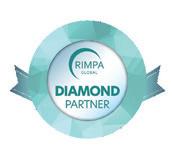


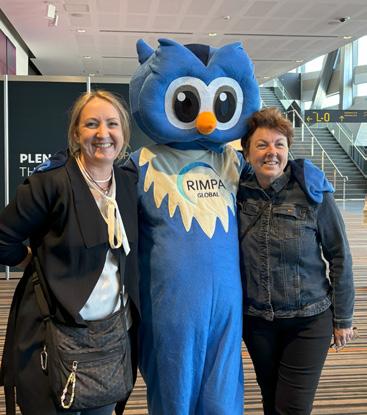
We came, we learned, and we definitely networked (and maybe snuck in a few too many coffee breaks or was that champagne breaks?).
From mind-blowing keynotes to workshops that made us rethink EVERYTHING about records, this year’s conference was one for the books. And let's not forget the epic gala—if you weren’t dancing, were you even there?
A huge shout-out to all the brilliant speakers, enthusiastic attendees, and sponsors who helped make the RIMPA Live Convention 2024 a smashing success! You brought the energy, the ideas, and maybe even a few dance moves we didn’t see coming. Already counting down to 2025! Who’s with us?

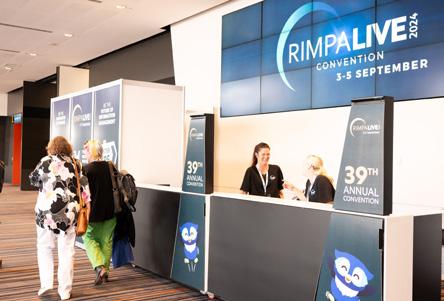

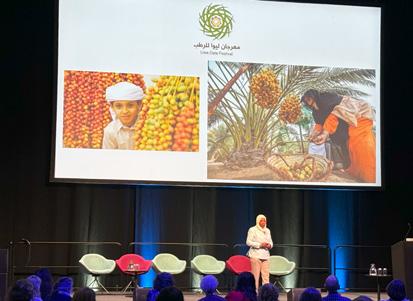





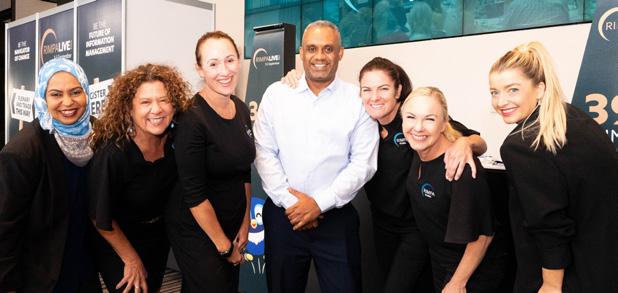


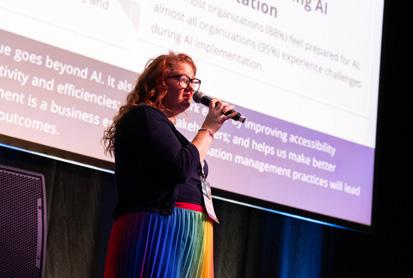

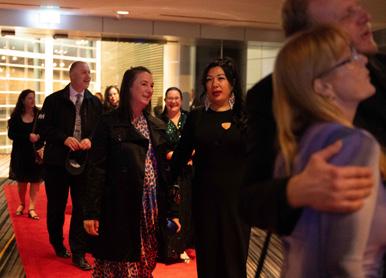

A huge shoutout to everyone who participated in the FIRST EVER Information Management Hackathon! You crushed it!
The National Archives of Australia (NAA) sponsored and actively participated in this year's RIMPA Global Hackathon, contributing as both mentors and judges. As leaders in records management, the NAA supported the event to encourage innovation and problemsolving in valuing information as a strategic asset. The hackathon brought together participants from diverse fields, collaborating over 24 hours to ideate, build, and pitch solutions to a judging panel.
NAA mentors guided participants in their preparation, leading to imaginative and high-quality pitches. One team connected historical figures like Sir Douglas Mawson to Mars exploration, while another viewed a child's teddy bear as a strategic asset. The judging panel, including Assistant Director General Josephine Secis, faced the tough task of evaluating such creative and varied pitches.
The winning team, Hacks of Human Kindness, presented a concept to financially value information assets. Their innovative approach involved integrating financial and information management to reflect the ‘cost’ of information assets on balance sheets, highlighting the challenges of fluctuating perceived value due to political, social, and economic factors. The event was a great success, showcasing the many ways information management professionals can recognize information as a vital strategic asset.
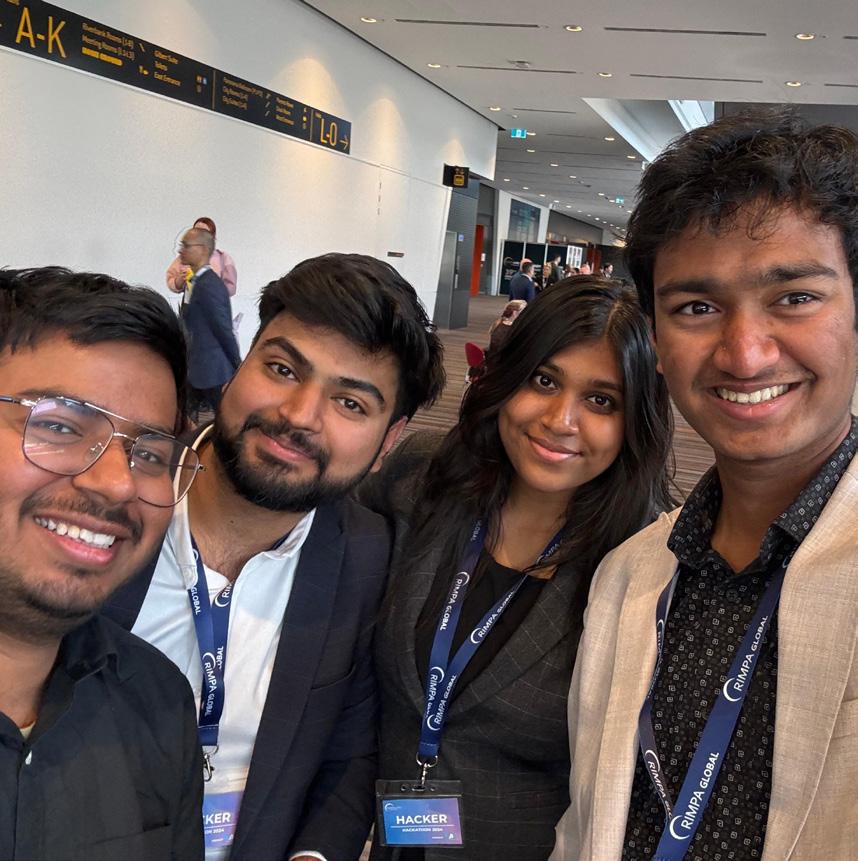
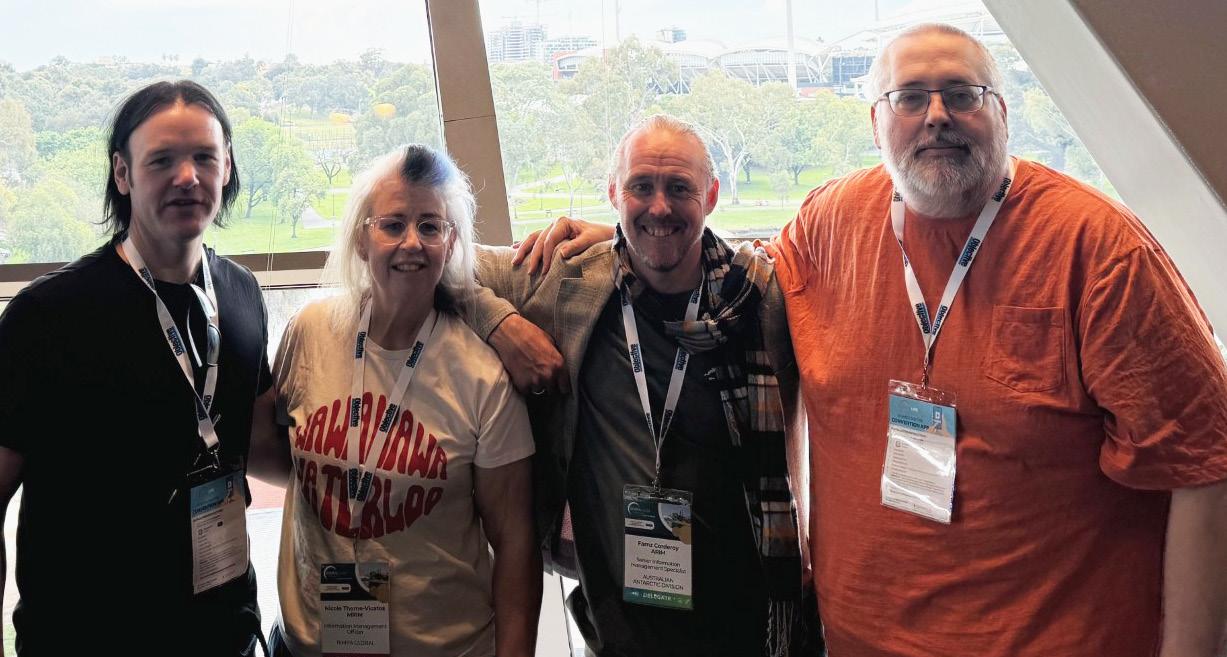
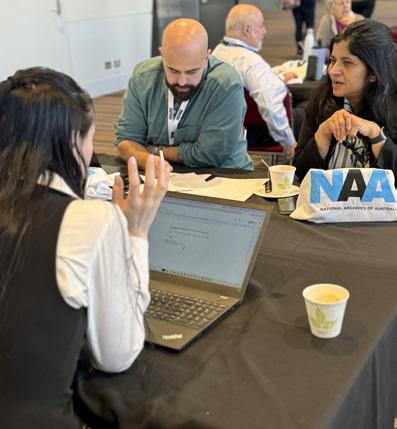
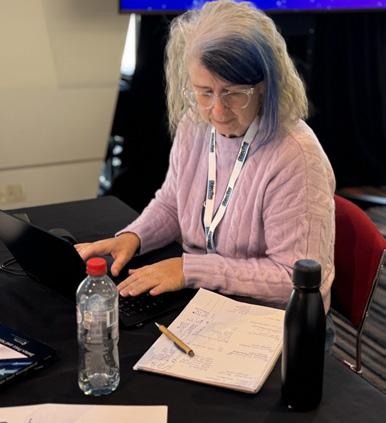
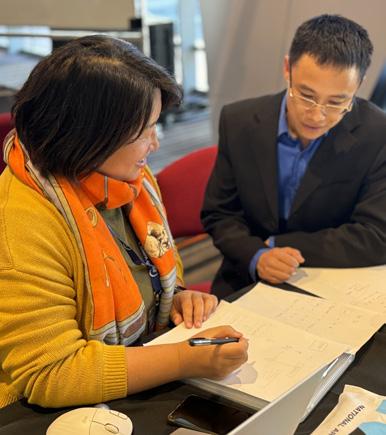


The Black-Tie Gala Dinner took place in the historic city of Adelaide, unfolding as a recognition of excellence, showcasing the dedication and innovation within our field.
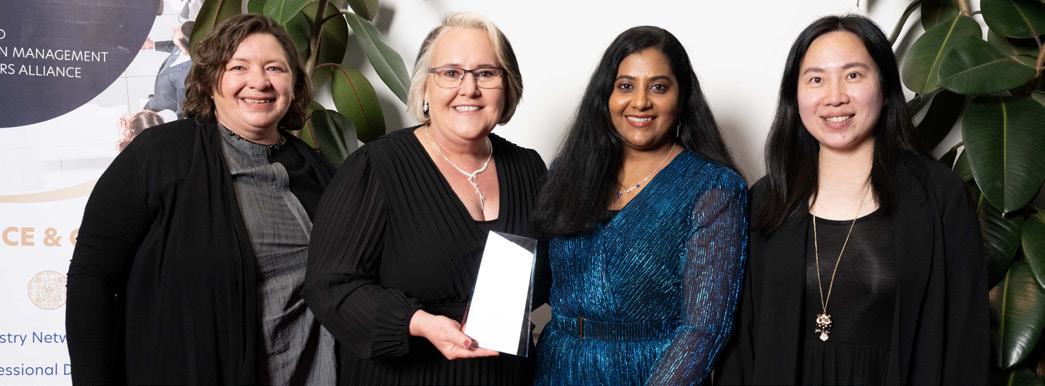
The focal point of the evening was the Company Outstanding Achievement (COA) awards, acknowledging significant contributors in the industry for 2024. The awards named in honor of industry leaders served as a testament to the outstanding initiatives, insightful articles, and unwavering commitment to RIMPA Global demonstrated by the evening’s celebrated individuals and entities.
Sponsored by Exedee, the iQ Article of the Year award is judged by subscribers and an assessment panel. This year the award was presented to Lewis Eisen. His article “Evaluating the Tone of IG Policies” advocated for a shift in our language when writing information governance policies. It was engaging, insightful and pushed the boundaries of our thinking.
The Tom Lovett Outstanding Student award, sponsored by Exedee, recognises a student who has achieved excellence in their educational studies, impacting them and the RIMPA Global community/ industry. The recipient Rachel Byrne completed a Diploma of Business (Digital Transformation), Cybersecurity Training (ISC2) and four RIMPA Global workshops.
The Pamela Hall Outstanding Group award recognises the contribution an organisation or group in their workplace, the RIMPA Global community or the records and information management industry and was sponsored by Exedee. The Information Management Team – City of Unley were the recipients of this year’s award. The team are a high output, hardworking, but small unit. Their project ‘Getting out of the Basement' saw the team working at full pace to keep ahead of the technological changes and
actively engaging with their work colleagues.
Recognising RIMPA Global volunteers for their time and contributions, the David Moldrich Outstanding Volunteer award is a testament to outstanding commitment to RIMPA Global and a reminder of the importance of volunteering and giving back to the industry. Awarded to Julie Carpenter MRIM, an outstanding volunteer who loves this industry, works tirelessly to advocate for RIMPA Global and our members. Julie has been instrumental in developing a range of member benefits and exemplifies the role of RIMPA Global ambassador.
Sponsored by Exedee, the J Eddis Linton Outstanding Individual award is presented to an individual who has made a significant contribution to records and information management. Having made significant contributions with a profound ands significant impact within the areas of: contribution to RIMPA, industry support, learning and development and knowledge sharing, the recipient of the 2024 award is Bethany Sinclair-Gardini MRIM
In the words of a fellow RIMPA Global member, ‘it is clear to see that Bethany genuinely cares about the well-being of our industry. She actively participates in industry events, shares knowledge, and supports fellow professionals. Her positive impact extends far beyond the workplace’.
The RIMPA Global Hall of Fame honours remarkable contributors in the records and information management industry. Inductees demonstrate longstanding commitment and dedication to RIMPA
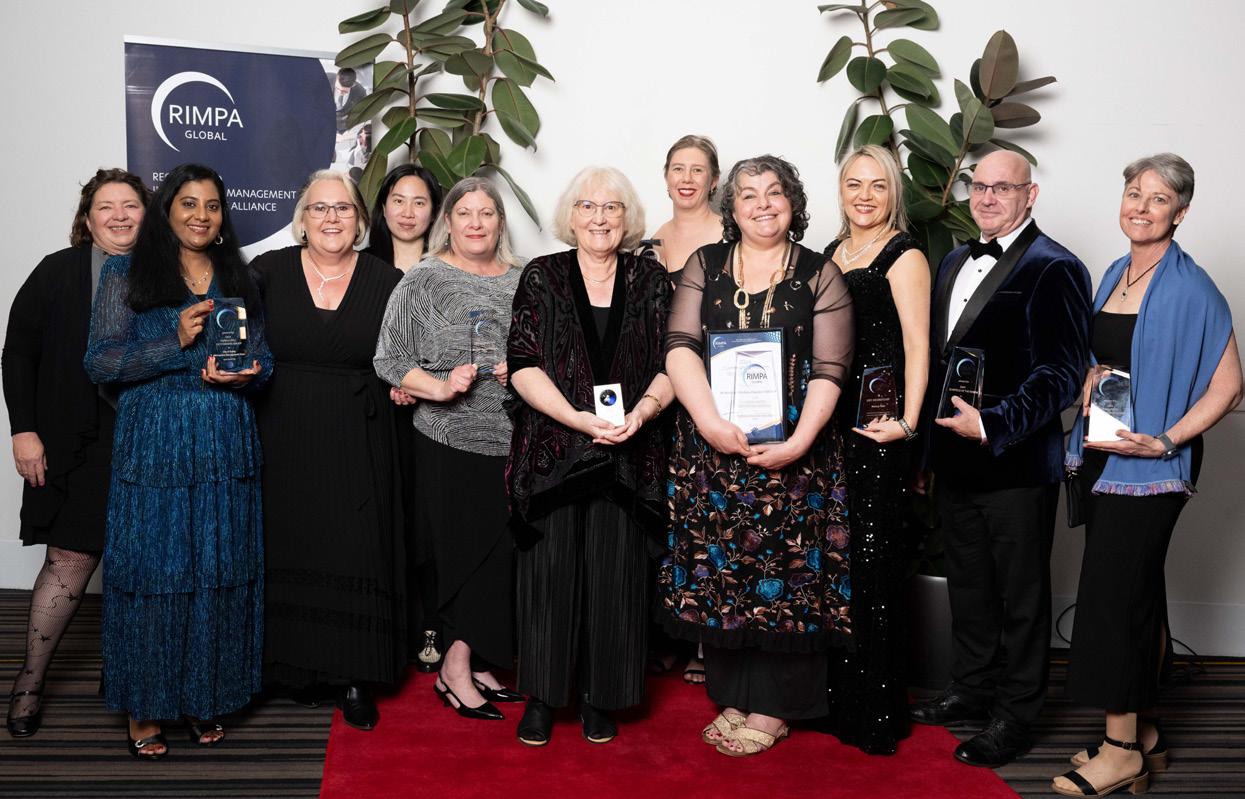
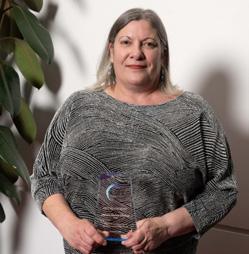
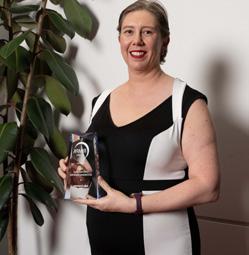
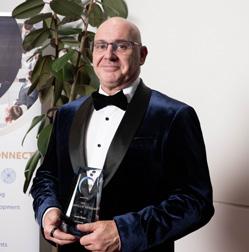
Global and have influenced the direction of the records and information management industry.
Records and information management is a central element of an organisations’ governance framework, protecting the past and guiding the future. In honouring inductees’ achievements in the industry, the RIMPA Global Hall of Fame preserves, presents and shares this heritage as an inspiration to all within the industry.
The 2024 Inductee is: Professor Sue McKemmish Life ARIM
Professor McKemmish is an archivist, scholar and the Associate Dean Graduate Research Faculty of Information Technology at Monash University, Melbourne. She is best known for her paper "Evidence of me" (1996), about personal recordkeeping and societal memory and played a significant role in the development of Records Continuum Model.
Sue McKemmish made significant contributions to the Victorian Branch of RIMPA in the late 1980s and early 1990s providing vital updates on standards and serving as an advisor to the Swinburne University Records Management Course.
Sue also contributed to the IT21 standards committee, where she focused on specialist areas such as the continuum and lifecycle.


In recognition of her exceptional journey, transformative influence, and enduring commitment to the records and information management field, Sue McKemmish is celebrated as an exemplary figure whose legacy will continue to shape the industry for generations to come.
Life Membership is given to a member as recognition of their long-standing dedication and continued support to RIMPA Global and for their commitment to professional membership.
The 2024 Life Membership recipients are:
Donna-Maree Findlay MRIM
Linda Shave FRIM
Petá Sweeney FRIM
Nancy Taia MRIM
2024 sees the introduction of the inaugural Community Forum Star Contributor which was awarded to Bethany Sinclair-Giardini MRIM. Bethany has consistently given back to the community forum, sharing her knowledge with members. She initiated numerous fresh posts and her contributions to ongoing threads kept many of the discussions lively and informative. In the past year, Bethany has interacted 1,973 times, which is close to double of any other member.
I had the absolute pleasure of attending the RIMPA Global Convention 2024 in Adelaide, courtesy of the Marita Keenan Scholarship.
Iwas very excited to receive the Scholarship and represent TasNetworks, not only for the opportunity to attend the conference, but to meet others in the records and information industry. It was a chance to connect with others in person and was invaluable. The immense effort put into making the event run so smoothly was clearly evident. For me it really bought to light the sense of belonging in the often-isolated field of records management. From the insightful presentations to the collaborative networking, I didn’t anticipate gaining so much from attending. The time and energy invested were more than worthwhile, leaving me enriched with knowledge, a lasting sense of community and the hope to return next year.
The opening welcome reception was held on the Regatta Lawns. It was kicked off with a beautiful smoking ceremony from Jack Kanya Kudnuitya Buckskin and a splash of tropical fun at an Aloha themed welcome reception. Wearing our finest Hawaiian shirts, island tunes, prizes for best dressed attendee as well as testing our skills on a mechanical surfboard. The night was filled with laughter, new connections within a relaxed environment.
The conference featured a stellar lineup of sessions and keynote speakers, each offering unique perspectives and cutting-edge knowledge. With a broad range of topics—from emerging technologies in records management to effective data governance strategies—the conference catered to professionals across various specialties.
A notable highlight was the keynote address, which explored the future of information management and the role of innovation in shaping industry practices. The speaker’s insights into navigating the evolving landscape of digital records and data management were both thought-provoking and practical, providing attendees with valuable takeaways.
A particularly memorable session was led by Wendy McLain, past director of ARMA International, who took a light-hearted approach to addressing the challenges introverts face at in-person events. Her tips and tricks for surviving and thriving in such environments were both amusing and practical. Inspired by her session, I headed to the mall and bought some fuzzy comfy slippers for my 4-night stay in Adelaide—a small but cherished comfort that made the event even more enjoyable.
"I didn’t anticipate gaining so much from attending. The time and energy invested were more than worthwhile, leaving me enriched with knowledge, a lasting sense of community and the hope to return next year."
"RIMPA Live 2024 far exceeded my expectations. With its stunning venue, exceptional food, and a wealth of informative sessions, it proved to be an event worth attending and I would do it again in a heartbeat."
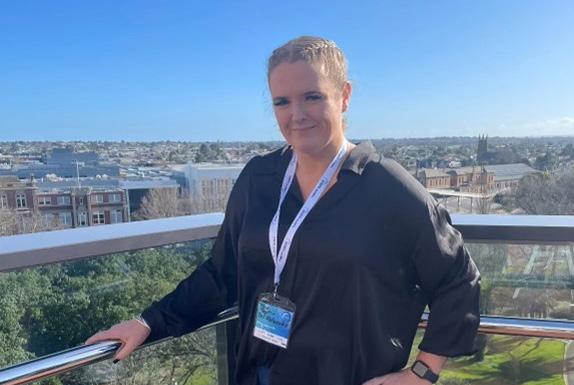
The black-tie gala dinner was especially memorable, not just for the amazing food but also for the camaraderie it fostered.
It was a chance to enjoy great company, celebrate the awards and take in the overall sense of community that had developed over the course of the conference and also to have a dance!
The conference sessions were thoughtfully curated, covering a wide range of topics pertinent to records and information management, alongside professional development discussions. A standout for me was John Flacket’s presentation on AI and the metaverse. His insights were both entertaining and thoughtprovoking, offering a glimpse into the future of the industry. The variety of topics and well-structured schedule kept me fully engaged, ensuring that there was always something relevant and interesting to learn.
Another highlight was the “Pitch Perfect: Next Wave Showdown!” where trade vendors had just 60 seconds to captivate the audience and showcase their innovations. The presentations were entertaining, featuring a mix of acting, song and dance, and even some Raygun moves. This energetic and creative showcase not only had the audience laughing

but also sparked curiosity to explore the vendors' offerings further.
RIMPA Live 2024 far exceeded my expectations. With its stunning venue, exceptional food, and a wealth of informative sessions, it proved to be an event worth attending and I would do it again in a heartbeat. What truly set this conference apart was the strong sense of community
within RIMPA Global where everyone was welcoming and eager to connect. It wasn’t just about acquiring knowledge; it was about establishing meaningful relationships and feeling part of a larger professional family. The time and resources invested were more than worthwhile, leaving a lasting impact on my professional growth and personal connections.

Records and information management (R/IM) professionals are highly in tune with their organisations' privacy and data protection (PDP) obligations. As a result, concepts such as preventing unauthorised access, data breach notification, and other high-level imperatives are already baked into information management policies and procedures.
On the other hand, if we have learned anything about PDP regulations, it is that they are constantly evolving. This article suggests that, as a result, it is time to revisit their vendor selection due diligence protocols.
The Australian Privacy Act, originally enacted in 1988, has been incrementally amended 80 times. Three of the most notable amendments include applying the regulation to the private sector in 2000, implementing the Australian Privacy Principles (APPs) in 2012, and establishing a mandatory data breach notification requirement in 2017.
Even as I write this, the Office of the Australian Information Commissioner (OAIC) has put forth another round of recommendations centered on aligning Australia's privacy framework with the European Union’s (EU) General Data Protection Regulation (GDPR). These prospective amendments focus on providing data subjects with greater control over their personal information, increasing accountability for organisations handling personal data, and ensuring that privacy protections keep pace with technological developments, such as AI and digital marketing.
Of course, the overall Australian PDP regulatory environment makes things even more complex, with another 13 territorial- and sector-specific regulations in effect across the country.
And, if that is not enough, due to international data transfer restrictions, many Australian corporations use contractual mechanisms known as Standard Contract Clauses (SCCs) to align their compliance with the GDPR .
Suffice it to say, that PDP compliance is both daunting and continually changing, and that is perfectly understandable that it leaves even the most wellintentioned R/IM professionals scratching their heads.
Vendors who take custody of, or have access to, personal information to perform their services are universally addressed in PDP regulations. In most regulations the vendor falls under heading of data processors. In the Australian Privacy Act, they are referred to as “APP Entities,” which includes banks, hospitals and other organisations responsible for protecting personal information.
A large corporation may engage dozens of such vendors, while a small organization may have a dozen or less. And though regulations vary in how they hold such vendors accountable, two things are consistent across the board. The first is that the organisation hiring a non-compliant vendor suffers the consequences of that vendor’s negligence and, two, that the only thing to mitigate those consequences is the quality of the organisation’s vendor selection and contracting process.


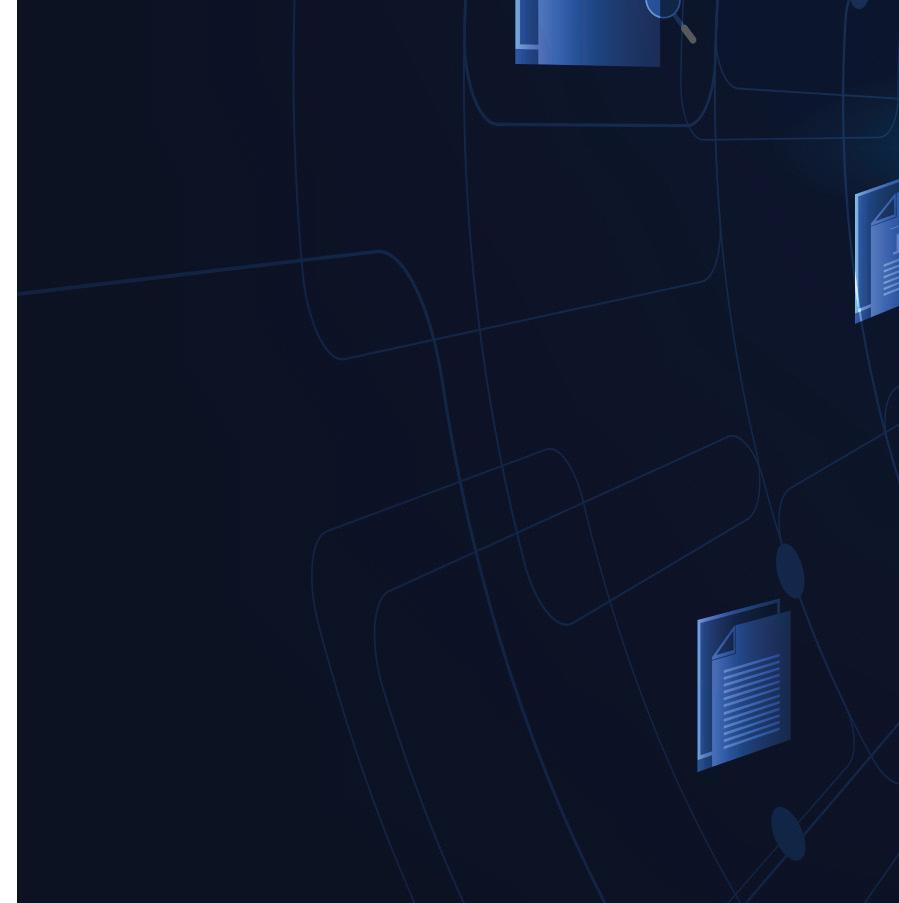
A partial list of such services includes background screening, cloud services, medical waste removal, card payment, office equipment leasing, fulfillment, credit reporting and debt collection, website hosting, and IT managed services.
It is worth noting that the failure to recognise the regulatory nature the various datarelated service categories is among the most common causes of non-compliance.
Thankfully, the number of such vendors under the umbrella of R/IM is generally limited and easily defined. They include document storage, document destruction, electronic or digital archiving, IT asset disposal, computer recycling, scanning and digital conversion, and R/IM software.
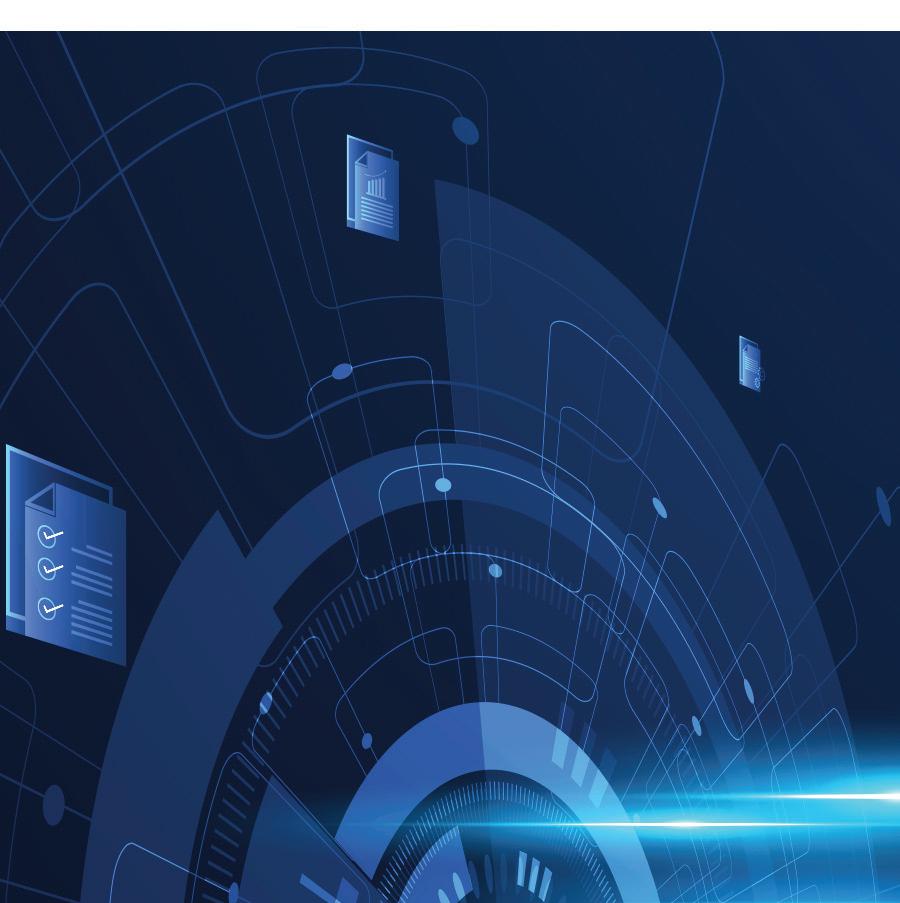

For instance, vendors are often subject to robust scrutiny even when there are no official written selection criteria or any documentation surrounding their evaluation. The problem is, however, that if regulators were to ever question the organisation’s vendor selection due diligence, there would be nothing to show them.

And though R/IM professionals typically do exercise some degree of vendor due diligence when hiring, international regulatory compliance and imminent changes to the national compliance regime require a more deliberate approach.
As previously mentioned, Australia’s international organisations obligate themselves to GDPR compliance via EU-approved SCCs. And, also as mentioned, indications suggest that all Australian organisations will be obligated to similar requirements in the not-too-distant future.
This includes compliance with the GDPR's novel requirement that compliance must be demonstrable.
This concept can be confusing at first. Isn’t simply being compliant demonstration enough? Turns out the answer is no.
Therefore, due to the requirement to demonstrate compliance, this robust vendor selection process could be deemed non-compliant or negligent. Think of it like a math test requiring the student to show their work. They might have the right answer, but if they can’t show how they got there, they are incorrect.
Elements of such vendor selection criteria would include:
• written detailed operational policies and procedures, highlighting regulatory alignment and data security
• detailed description of processing activities
• internal accountability (e.g., a qualified compliance officer or DPO)
• applicant background screening protocols
• description of employees training on operations, duties and identifying potential breach incidents
• description of how employees are identified
• clarity on the prevention, detection and response to unauthorised access
• step-by-step incident reporting and breach notification protocols
• definition of the retention and disposal protocols
• description of the subcontractor vetting and contracting process
• frequency at which policies and procedures are reviewed and revised



"Even as I write this,
the Office of the Australian Information Commissioner (OAIC) has put forth another round of recommendations centered on aligning Australia's privacy framework with the European Union’s (EU) General Data Protection Regulation (GDPR)."

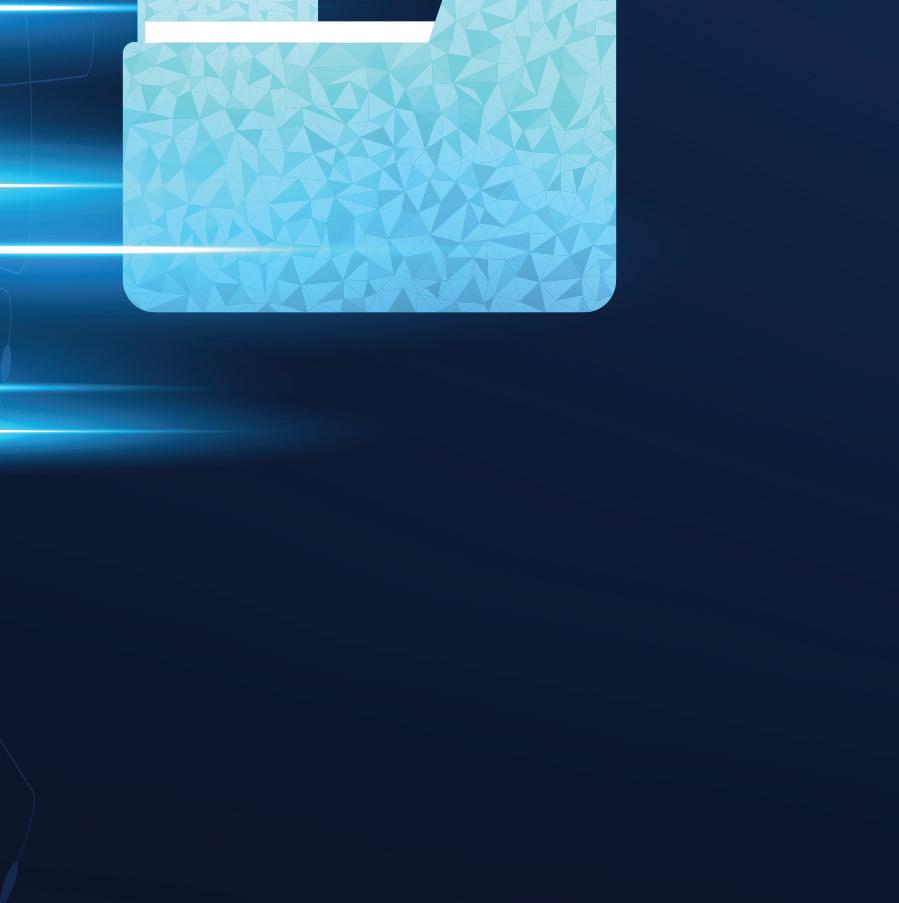
• security specifications that are unique to the service provided, for example, network security specifications when services entail the storage on a networked computer

• unique regulatory considerations, depending on the service provided, for example, environmental or biometric privacy.
For the record, there is no circumstance where a service provider should be allowed access to regulated personal information in the absence of a properly worded data processor contract. The value of any prior level vendor selection due diligence would be severely reduced without it and should a data breach occur involving such vendors, not having a contract in place would be considered negligent by regulators and in court.
• enlist and assure the vendor’s assistance in fulfilling data subject rights, for example the right of access, rectification, portability, deletion and object to processing
• establish the right to audit the vendor’s compliance (records and facilities)


Besides the typical clauses of any service contract, datarelated vendor contracts should also:
• restrict access to client information to screened, trained employees with legitimate need to have such access
• limit the vendor’s processing, use, sharing, retention, and disposal of client information
• tie all processing to the vendor’s written policies and operational procedures, which should be included as an exhibit to the contract
• require that the vendor have a data protection officer (DPO) meeting the qualifications established in Article 37 of the GDPR
• stipulate the required certifications and technician qualifications (if any)
• establish incident and breach notification response requirements
• restrict the transferability of the contract to a third party without prior written consent
• identify the communications channels for issues such as compliance, operations, incident and breach reporting, and contract amendments
• agree that the vendor will accommodate contract amendments made necessary by unforeseeable regulatory compliance requirements
• establish the requirement to have professional liability coverage to a defined limit.
Regarding the last point, indemnification, although organisations understand they bear the regulatory and financial consequences of a vendor breach, they often contractually transfer liability to a vendor. The problem, however, is that they fail to validate the quality of the underlying insurance or even whether there is any coverage in place at all. Obviously, transferring liability is of no value if the risk is not properly indemnified. It is not uncommon for a vendor to accept liability while having no indemnification whatsoever.
As a result, best practices in this regard, focus on requiring the vendor to provide verification that they hold a specific amount of professional liability coverage when accepting liability, and the limit of liability is aligned with that amount.
"Amending vendor selection and contracting requirements should begin with an organisation modifying its own policies and procedures. Such a project requires management buy-in, legal review and the involvement of other stakeholders."

The type of change described here starts by looking in the mirror.
Amending vendor selection and contracting requirements should begin with an organisation modifying its own policies and procedures. Such a project requires management buy-in, legal review and the involvement of other stakeholders.
Next, consider that an organisation probably has a full complement of vendors providing these datarelated services. Though these vendors were not subject to the deliberate formal scrutiny and contract language that will come, it’s neither prudent nor practical to start from scratch. Therefore, once the vendor selection policies and procedures reflect the heightened protocol, the most logical and fair method is to provide a window of time for compliance.
It is very likely that current vendors will be pleased to improve their compliance profile. Not only cooperating but also helping to identify selection criterion that is unique to their service category.
Whether remediating an existing vendor or onboarding a new one, the evaluation process is relatively straightforward. With the selection criteria in hand, the vendor’s (or prospective vendor’s) written operational policies and another documentation, for example insurance validations, certifications etc., can be assessed and audits may follow, if needed. Once eligibility is established, other aspects such as price can be considered. When it comes to executing a new contract with legacy vendors, it is reasonable to expect cooperation. The truth is that they really don’t have a choice. The new contracts

are predicated on regulatory compliance and to the degree a pre-existing contract is therefore non-compliant, it would be difficult to defend. Later, when the service term comes due for revisiting, the new selection criteria and the new contract language will have already been integrated into the data processor onboarding protocol.
In her comments at event in May, when asked what she wished for most, Australian Privacy Commissioner Carly Kind quipped “an unlimited enforcement budget.” Though said in jest, privacy experts know the response bore more than a kernel of truth. The relatively new Commissioner has since emphasised that the OAIC will adopt a more robust enforcement approach, advocating for businesses and governments to bolster their privacy practices considering forthcoming privacy reform.
Of course, she is not the only one seeking more accountability in this regard. Data protection and privacy are high on the minds of boards of directors, the C-suite, investors, customers, and employees.
The role of the R/IM professional in realising privacy and data security aspirations goes beyond vendor management.
New data subject rights to access, rectification, deletion, and portability all involve information management. The same can be said of new data controller obligations related to use and retention limitations.
Ideally, there is a strong intersection between compliance and records departments, but, in any case, R/IM professionals have a fantastic opportunity to further demonstrate their integral role by understanding and responding to the overlap and to their emerging responsibilities.
With 35 years of experience in data security and regulatory compliance, Bob Johnson is a globally recognised expert in information disposition and privacy. He co-authored ASIS International’s Information Security Guidelines and contributed to IT Review’s IT Asset Disposal Training Course. A Certified Secure Destruction Specialist (CSDS®), Information Privacy Professional (CIPP/US®, CIPP/E®), and recipient of the NAID President’s Award, Bob is the author of Information Disposition, a definitive textbook on policy development and vendor due diligence. As the founder and CEO of NAIDi-SIGMA, he created the NAID AAA Certification®, a leading data processor compliance program. His expertise has shaped data security regulations worldwide, including testimony before the US Senate and Parliament of Canada.
Digital transformation has exponentially increased the volume of information managed by government agencies, leading to content sprawl. This phenomenon complicates information management practices and elevates the risk of Personal Identifiable Information (PII) exposure. The scattered nature of information means that sensitive information can easily slip through the cracks, becoming unknown or unmanaged, and vulnerable to breaches and misuse. The consequences? Compromised citizen trust, hefty compliance penalties, and a tarnished reputation.
How can information managers, records managers, and compliance officers within the government sector steer through this maze? To maintain privacy and reduce the risk profile, it is critical to protect personal and sensitive information by implementing three fundamental steps:
The first step, discover and understand the PII and Sensitive Information within your information ecosystem. This crucial step involves connecting to disparate information





silos or applications and creating a data fabric to understand the data your agency holds, identifying what constitutes PII and where it resides. Effective discovery mechanisms can illuminate the dark corners of content sprawl, revealing both known and unknown PII. This foundational understanding is imperative for compliance with privacy laws and for formulating robust information protection strategies encompassing the full breadth of information managed by the agency.
The second step involves visualising and analysing your content. By gaining a clear view of your agency’s information landscape, you can understand the volume and types of PII entrenched within your documents. Utilising visualisation tools, agencies can quantify how many documents contain PII and, more importantly, what types of sensitive information these documents hold. This analysis is critical in determining the agency’s risk profile and essential for making informed decisions on prioritising the required actions. It sheds light on the degree of risk each type of PII poses to the organisation.











The third step is to create and execute an action plan with a clear roadmap for deploying appropriate safeguards against data breaches. This plan should be multifaceted and focus on the required action based on the type of sensitive information and where it is found. For example:
■ Move it: Identify the most sensitive information and ensure it’s stored in the most secure, yet accessible locations. This may involve transferring information to a more secure location that offers advanced security features.
■ Secure it: Update access controls to protect information wherever it resides. Ensure that only authorised personnel can access sensitive information, making it unreadable to unauthorised users.
■ Redact it: For documents that must be shared externally or with lower clearance levels internally, employ redaction tools to remove or obscure sensitive information. This ensures that the information can still be useful without posing a privacy risk.
■ Dispose of it: Safely dispose of or delete information that is no longer necessary or relevant to operations in accordance with data retention policies. This reduces the risk of outdated information being exposed in a data breach.
At Objective, we develop digital governance software for stronger communities, advocating a holistic approach. View our infographic to learn how to identify and manage citizens’ PII effectively.

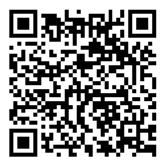
Our iQ theme for 2025, Future-Ready in Information, is a call to arms for writers to delve into how organisations can adapt their records and information management strategies in the face of ever-evolving digital landscapes.
With data-driven innovation reshaping every aspect of our industry, we’re looking for contributions that explore how AI, automation, and other emerging technologies can be harnessed to meet new regulatory challenges while enhancing efficiency and security.
This is your chance to discuss not only the tools, practices, and innovations that will help prepare the industry for future challenges, but also the opportunities that come with these advancements.
We’re also keen to hear perspectives on upskilling professionals, ensuring that practitioners are equipped with the knowledge, expertise, and leadership skills to navigate this shifting terrain.
Additionally, we invite writers to explore the global perspective, particularly how developing countries can be empowered with equitable access to resources and expertise, ensuring that all regions can build robust, future-ready information systems.
This theme is about equipping both individuals and organisations with the tools to thrive in a rapidly changing environment, ensuring the industry remains resilient and forward-thinking.
Guidelines about writing for iQ can be found at

Contribute to iQ Magazine
Email: editor.iq@rimpa.com.au

Do you look forward to standing in front of your staff to motivate them to work harder and faster? Are you capable of delivering the key message that shows your decisive planning and leadership skills that will create confidence in your position as their manager?
Your staff need to be motivated and inspired to undertake the tasks, which you are presenting to them.
PRESENTING EFFECTIVELY IS SIMPLE WHEN YOU FOLLOW THESE SIX SIMPLE STEPS.
STEP ONE: FORMULATE YOUR OBJECTIVE
The most effective way to begin preparation is to get clear on your objective. This could be a simple statement about what you want to happen as a result of your presentation. It might be to develop a plan, cut costs, or raise sales targets. If you are unsure why you are presenting you will receive unsure results.
STEP TWO: IDENTIFY YOUR AUDIENCE
It is important to decide who exactly you will be presenting to. If it is the staff in your team, you can use their language or slang. If it is a different group you may have to tailor your presentation to suit that group. A senior management group would require a different approach which may include cost comparisons and profit projections.
STEP THREE: CREATE A STRUCTURE
All good presentations have a defined structure which guides the listener to a well formed conclusion. Make sure you structure your presentation to adequately explain your issue. A sequential approach is the simplest and most traditional method of presenting and building a solid approach.

ABOUT THE AUTHOR
STEP FOUR: THE BEGINNING
Begin your presentation with a memorable point or fact. Get the audiences attention straight away and keep it by establishing and following a theme for the presentation. Create rapport with the audience by using language which is peculiar to the group. Look directly at everyone in the group, meet people’s eyes as you scan the audience. Pause occasionally to enforce a point by addressing one person with your eyes and body. Remember to smile.
STEP FIVE: THE ENDING
The ending is as important as the beginning. Get the audiences attention and signal that you are about to wrap up. You could summarise the main points of you r presentation or simply end on a high note with a new proposal or statement of facts.
STEP SIX: THE DELIVERY
No matter what you say, all eyes will be on you and your body language. People take in a lot of detail with their eyes, so it is important to take care with your appearance and your stance. Your voice and expressions will be taken into your audiences sub conscious next, so make sure you speak clearly and articulately.
CONCLUSION
A well prepared presentation will have a dynamic effect on the members of your team. It’s worth the effort.
Lindsay Adams is the CEO of 24x7 Assessments. He is an award-winning conference speaker and specialises in understanding people and bringing out the best in people. He has a wealth of experience in the assessment tool industry and has used thousands over the last 23 years in his own business. Today he teaches others how to harness the power of these tools for quality outcomes with their staff and stakeholders. In 2020 Lindsay was awarded a Medal in the Order of Australia, OAM for his services to the professional speaking industry. Contact Lindsay at lindsay@24x7assessments.com.au or www.24x7assessments.com.au
ISHAN GALAPATHY
Employee engagement is the Holy Grail that most employers are searching for in order to have everyone in the team working to their full potentialcontributing to a productive workforce, delivering meaningful outcomes, creating a happier workplace, and delivering a better bottom line.
Sadly, the statistics aren’t great. If we look at 2022 data from Gallup (the global authority on all things related to employee engagement), only 23% of our workforce accounts for engaged employees. The disgruntle and actively disengaged category represents 18%; and the fence-sitting, quietly quitting, unengaged group accounts for a whopping 59%.
Imagine having a team of ten rowers on your boat, with three people rowing their heart out, five just sitting with their arms crossed adding dead weight, and two people rowing in the opposite direction. How fast do you reckon your boat can go?
If this rowing team represented the entire workforce around the world, the impact of the fencesitters on the global economy is a staggering US$ 8.8 trillion or 9% of the global GDP. That’s a lot!
So, how can we tap into this underutilised potential of the team? The good news is, it’s easier than you think.
Reviewing the Gallup trends over the last 15years, it highlights the issue in black and white. We’ve worked really hard to reduce the actively disengaged category – the disgruntled, disruptive, disenchanted. Yet, the fence-sitting, quietly quitting category has more or less remained the same over the years. Even though we’ve seen fairly consistent upward trends in engaged employees, it’s the overwhelming volume of the disengaged workforce that signals our greatest source of untapped potential. Having worked across multiple companies and countries over the last 25 years, I know for a fact that the fence-sitting, quietly quitting employees are only seemingly disengaged. While you might think that these employees only turn up in body, leaving their brains behind, I’ve found that they are waiting to be discovered, leveraged and motivated.
Below is a three-step framework that will help you to unlock the true potential of your team, leveraging the few engaged team members, involving the majority fence sitters and ignoring the disgruntle.
Leverage belief and the trust of your few diligent team members. They are willing to work hard but there are getting tired, overwhelmed and on the brink of quitting or falling into the disengaged category. The main reason is that they are the only ones who have to deploy initiatives, solve problems, generate new ideas and deliver the day-to-day results.
The key in this step is to involve a few quietly quitting fence-sitters into some key improvement initiatives that are led by an engaged team member. Ensure the disengaged are involved in resolving matters and are not just sitting idle –like those adding dead weight in our rowing team example.
Expedite results and help the team to make faster progress. I find progress to be the antidote for disengagement. When everyone gets involved and the team starts to make progress, even the quiet ones will start to feel proud of the team’s contribution.
If they follow any structured problem-solving methodologies, chances are over a two-to-three-month period they would deliver exceptional results that would even surprise the engaged few. You’re starting to make a difference.
You cannot keep this success a secret. Leverage every possible opportunity – townhall meetings, newsletters, bulletin boards, canteen posters, team meetings – to share the team’s success. The best approach is to get the team to present, not you the leader. What you will find is that progress and positivity to be infectious. Celebrate together. Soon, your quietly quitting fence sitters cannot not become engaged. Then you can leverage them to lead more initiatives on their own, involving the next layer of fence sitters.
The key to unlocking team’s full potential is involving the quiet quitters. If you repeat the above cycle each quarter, within a year you’ll notice that the ship is turning faster than you expected. With the fencesitters starting to become believers, teams will start feeling happier, more productive, better engaged and running on all six-cylinders – their full potential.
Ishan Galapathy is an operational excellence strategist, author, speaker and mentor renowned for his simple techniques that deliver big change. With more than 25 years of experience across seven countries, Ishan helps businesses unlock their hidden capacity and true capability. His latest book UNLOCK delivers techniques to convert seemingly disengaged employees into change drivers. Download your free introductory overview from UnlockBook.com.au.
Our clients entrust us to receive and digitise valuable business and historical content. Our solutions are designed for organisations that prioritise robust capability, compliance, and information security.
Trusted partner
Digitisation solutions of the highest quality that meet the most rigorous information security and compliance standards.
• ISO 27001 & ISO 9001 certified
• Information Security Registered Assessors Program (IRAP) certified
• Defence Industry Security Program (DISP: entry level) certified Approved partner of the Federal Agencies Digital Guidelines Initiative (FADGI)
• Australian data sovereignty
• Data encryption & data segregation
Unmatched capability
The latest technology, best-practice automation processes, and comprehensive digitisation solutions.
• Inbound production facilities across six states and territories
• Capacity and readiness to scale for significant events
• The largest fleet of rotary scanning devices in Australia
• Flexible integration options for seamless data delivery to clients
Comprehensive solutions
Secure digitisation options that address various business challenges and requirements.
• Digitisation of archived files
• Streamlined processing of incoming paper records.
• Management of confidential documents
• Secure capture and processing of personnel, health, corporate, project, and financial records.
• Preservation digitisation
• Digitisation of fragile, culturally sensitive and high-value assets.
JAMES PRICE
Driven by the pandemic, the big cyber breaches and now Artificial Intelligence, we are currently experiencing an explosion of corporate concern about data. Associated with that explosion is a burgeoning interest by executives in the value of their organisations’ Information Assets i.e. their data, information and knowledge.
Understanding the value of Information Assets is critical for decision making around their governance and management. Without that understanding, securing investment in and budget for information management is difficult because investment in the quality of Information Assets must withstand competition from all the organisation’s other business cases and scrutiny from the Chief Financial Officer.
Records Managers have been at the forefront of understanding of information value for decades; for many years we have talked about vital information, about the organisation’s crown jewels. But we face many challenges. Primarily, the accounting profession does not recognise the value of Information Assets and include them on the balance sheet. Furthermore, much of the value of our Information Assets is intangible.
To overcome these challenges, we can consider other aspects in a business case for Information Asset management. These are:
• risk
• cost
• value
• benefit
• ethics.
Like the truck, information assets have associated risk. They carry risk in areas including;
• access and security including cyber-security
• disaster recovery and business continuity
• litigation and discovery
• compliance
• competitive advantage or defence against competition
• human safety
• personal and corporate reputation, and
• they can be used to mitigate other business risk.
You cannot mitigate business risk without the appropriate information. University of South Australia in conjunction with Experience Matters have conducted quantitative research involving:
Imagine you acquire a new truck. The truck carries risk, which can include:
• financial risk – will revenue exceed expenditure or will an accident write the truck off
• human risk, in terms of lifestyle, injury or death
• reputational risk, for example if the truck kills someone.
The truck comes at a cost. The cost of truck can include what you pay for it when you drive it out of the showroom, financing costs / interest, licensing, insurance, maintenance, fuel, and salaries and wages. The truck has a value.
After 5 years the book value of the truck is zero, having been fully depreciated. Its market value is what someone will pay for a second-hand truck. The truck has inherent benefit i.e. the money it can make in its productive life, or perhaps the pleasure and pride that one gets from owning and / or driving a truck. Finally, there are ethics associated with owning and driving the truck. For example, is it ethical to drive a truck dangerously fast or whilst under the influence of drugs?
Information assets are the same.

• Chief Operating Officers (COOs) representing 142 North American law firms
• Information Management (IM) professionals representing 239 mostly government organisations from around the world and
• 313 staff of a large South Australian State government department.
From the research findings, many business impacts were identified. 73% of Information Managers identified the inability to comply with legislation as a major implication, 67% of staff of the government agency identified the risk of poor decision making and, of the COOs of law firms, 65% nominated a potential loss of reputation, 56% a loss of clients and 44% a loss of competitive advantage. These findings constitute serious business risks.
Table 1 shows the types of business impact, particularly risk, of current information management practices.
Like the truck, information assets have a cost. As an example, every time a person deals with an email with an attachment there is a cost in deciding what to call it, where to put it, who to give access to it, how long to keep it for and so on. There is also a cost in finding that document again when required. Every conversation, every meeting, every document, every spreadsheet, every report and every review has a cost.
Now some accountants will say that is a salary cost. However, this view assumes either that work practices are as efficient and effective as possible or that productivity is of no interest. Neither view is tenable. The worse information assets are managed, the higher the cost in risk, waste, diminished productivity, poorer decision making and staff frustration. These costs are significant both in daily operations and when things go wrong.
Like the truck, information assets have a value. That value may be calculated through:
• market value
• replacement value
• income generating value
• deprival value
• societal value
• other, or a mix of, methodology(ies).
The value of information assets is different from most other resources. According to Doug Laney, information assets are a “non-rivalrous, nondepleting asset. The value and return from information ends up being far greater than for other assets. Information is increasingly being substituted for other assets. Uber substituted cars for information and logistics companies substitute inventory for just in time information.”
"Like the truck, information assets have a cost. As an example, every time a person deals with an email with an attachment there is a cost in deciding what to call it, where to put it, who to give access to it, how long to keep it for and so on."
TABLE 1

The value of information is not easily quantifiable and its value depends on context and use. Information that has value to an individual one day may not be of value to them the next day or as the information ages and may become obsolete.
The value is also contextual and user specific. Consolidated information that is valuable to a Chief Executive may not be of the same value to other employees.
Like the truck, information assets can deliver benefits. They are used by every staff member to do their jobs and drive business outcomes for the organisation.
Our research has also showed that there is enormous potential benefit from well governed and managed information assets. The table below shows the average time wasted by the staff of the organisations investigated. The business opportunity lies in reducing this waste and improving productivity and staff professionalism and satisfaction.

Like the truck, ethics is associated with the management and use of information assets, particularly with information like customer data. Ethical issues such as confidentiality and privacy of information assets are burgeoning topics globally. Our ethics are grounded in our culture and social origins and they go beyond what is right and wrong.
Ethics change over time, for instance, in the mid-20th century, it was common for doctors to make significant health decisions for patients without fully informing them of their condition or treatment options. The physician, as the expert, knew best. Today, the modern medical ethic emphasises patient autonomy, informed consent and patients have a right to make decisions about their own bodies.
Our ethics are also contextual; for example, whilst aviation fuel can be used to carry food aid to starving people, it can be used to carry bombs. Ethics are also personal.
Peter Worthington-Eyre, South Australian Chief Data Officer says, “Organisations don’t have ethics; people do.”
"Like the truck, ethics is associated with the management and use of information assets, particularly with information like customer data. Ethical issues such as confidentiality and privacy of information assets are burgeoning topics globally. "
Daniel Manuel, Chair of the Australian Information Security Organisation advises, “[Directors] must develop the data and privacy literacy to be able to understand how to discharge their responsibilities and when to ask for expert advice.”
And Malcolm Crompton, previously the Australian Privacy Commissioner, and Michael Trovato write: “Directors and Boards are responsible for directing their entity to leverage data-driven opportunities while ensuring that privacy is built into its governance, control and management.
To do less risks both loss of business opportunity and noncompliance with the law.”
Information assets are the lifeblood of our organisations. No business activity, no business process and no business decision can be conducted or made without them. Enormous risk and opportunity are shouldered or available depending how we govern and manage our Information Assets. Governing and managing those assets well requires investment. Investment requires justification. Justification requires an understanding of business impact.
James Price is the founder and Managing Director of Experience Matters. He is the lead author of “Information Asset Management –why you must manage your data, information and knowledge the way you manage your money”, an MBA lecturer at the University of South Australia, Chair of the global Data Leaders group, council member of the Data Management Association and a Fellow of the Governance Institute of Australia. He is also a peer-reviewed author and keynote speaker at international conferences.
Leverage our technology partnerships to ensure your information management and data compliance obligations are met. We offer a range of cloud backup and data protection solutions:

sales@timg.com | 1800 464 360 | timg.com/solution/backup-tape-services
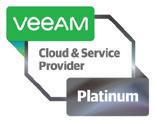
DAVID ROBINSON
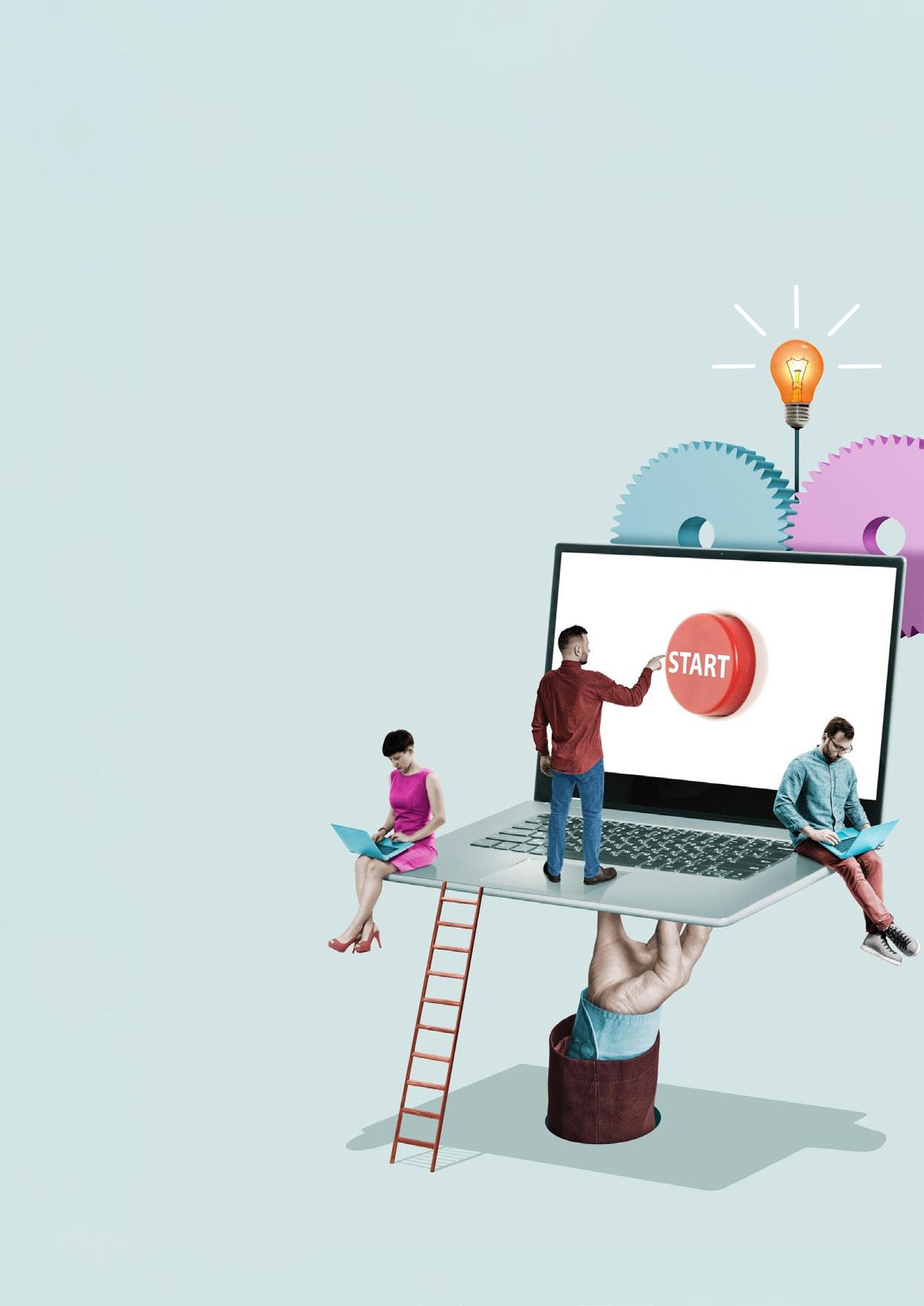
Information management (IM) can be often viewed from outside the profession as a boring, meaningless compliance-based activity that has little business value as a corporate function. So, trying to change these perceptions when promoting or selling the benefits of IM work or your next IM initiative can be a daunting task from the start.
This is where ‘Job Crafting’ can allow you to unlock your creativity by leaning into your ‘personal passions’ to improve the chances of your next initiative achieving its objectives. This article will explain what Job Crafting is, how it was successfully implemented in two local government authorities and how it can be used to reinvigorate your work.
Job crafting has always been part of the human existence where we have taken tasks or activities and redesigned them to make them more meaningful for the individual. This usually occurs naturally and often without seeking approval beforehand.
A very simple example is deciding to speak with a new employee in a business area to introduce yourself and the IM purpose when it may have been more ‘time efficient’ to e-mail with a link to the IM webpage. The decision to speak with the employee was done without formal approval and with the purpose of making a more meaningful connection for you and your team.
So, with this example in mind the chances are that you and/or your colleagues have been job crafting without realising it.
The term ‘job crafting’ was formalised in 2001 in a Yale University study[1] focused on cleaning staff at a hospital[2]. The study determined that around half of the cleaners viewed their role as being different to their position description. This group reported greater meaning, enjoyment, and commitment to their job.
While some cleaners repeated what their position description said and viewed it as the means to an end, the other group viewed the same job as part of the overall patient health care plan. These cleaners described themselves as ‘healers or ambassadors’ and would often double back on their round if they noticed a patient may need extra support. One cleaner, cleaning in the area where patients were in a coma changed the artworks in their rooms regularly and when asked why by the researchers said they were doing so in the hope that changing the environment might spark the patient’s recovery. When asked if that was part of her job, she replied “No, that’s not part of my job. But that’s part of me.”
This was a powerful example of how ‘lower level’ organisational employees can find meaning and belief in the work when common perceptions maybe that they do less meaningful work in the organisation. This resonated strongly with my own personal experience working in IM for 37 years.
As the Yale University study highlights only half of the hospital cleaning team were job crafting and it’s important to note that you can’t make everyone fall in love with job crafting. I experienced this directly when I began researching ‘job crafting’ in 2019 and looking to implement it with an IM initiative on naming conventions at Moorabool Shire Council (Victoria).
Figure 1. Popular 90's TV show X Files inspired project logo.
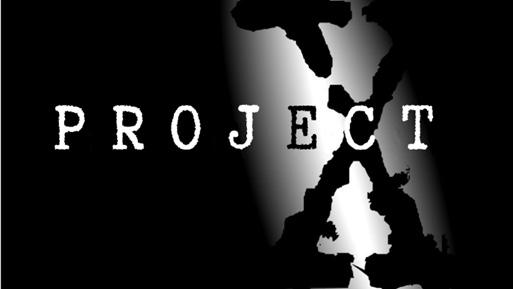
The IM team was tasked with introducing document naming conventions to support a SharePoint system implementation. When raising the idea to job craft the initiative it met a less than enthusiastic response. Nevertheless, I was inspired to try job crafting and set about deploying a simple, colourful, and engaging 1 page naming convention based on metadata bricks that staff could use to build standard document titles. Naming conventions, even for the seasoned IM professional, can be a ‘dry’ subject so ‘Project X’ was crated as an educational initiative to explain the importance of naming conventions using a secret agent theme.
In researching the initiative, I encountered evidence[3] around the power of storytelling which discovered that people are 22 times more likely to remember facts when told in a narrative. Outside of my regular work I’m passionate about pop culture, comic book stories and most things historical. With these personal passions mixed into the project led me to develop a central comic book story set in 1863 in the Victorian gold fields with the main character Stan ‘Doc’ Titles, a notorious metadata bushranger (bandit) who explains to the reader the importance of naming conventions.
Figure 2. Main character: Stan ‘Doc’ Titles making off with Shire’s gold metadata bricks and toilet paper.

The project secretly recruited staff volunteers to help conduct the project. The project had just commenced when the pandemic broke so material had to be reworked. While the project was shut down for five months we reorganised to film a short movie once the regional lockdown lifted.

Additional volunteers with specific skills such as bakers, actors, illustrators, costume design, set construction, film photography, video editing and movie directing were secured.
Figure 3. Staff volunteer actors 'Ajay' (left) and 'Wes' (right) in Project X movie.

Moorabool – A Metadata Journey the movie - was born. One of the most enjoyable aspects of this project was that family members of the staff volunteers assisting were also involved. We had teenagers helping their parent actor rehearse their lines and family of staff build the movie set. This job crafting project brought together volunteer staff from executives, managers and the frontline all working on creating visual art for an IM initiative and having a lot of fun doing so - all on a tiny budget.
The project exceeded its outcomes in terms of influencing the use of naming convention use in SharePoint. Executives embraced it as it provided them an opportunity to show their fun side which in turn led to many of their staff also getting involved. The project went on to influence other corporate functions such as Occupational Health and Safety using visual art and Human Resources looking at storytelling to refresh the corporate values statement.
The project was submitted for the Municipal Association of Victoria’s 2022 Technology awards and was nominated in three of the six categories, winning in the ‘Collaboration & Partnership’ category.
Figure 4. Project X creator, David Robinson (left) accepting MAV Tech award.
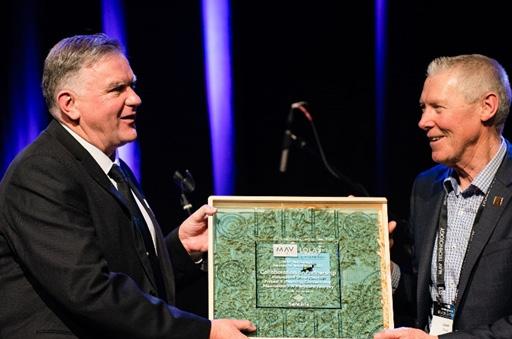
In 2023, council’s information asset register (IAR) needed updating. A task which fell to the IM team. Like naming conventions, the IAR can be a dry topic to raise with information asset owners, so this project was a prime candidate to receive a job crafting makeover. The new Information Management Analyst, Sam Parker was assigned the task and, after workshopping with Sam possible job crafting ideas, we agreed on a marine inspired theme. Outside of work Sam is passionate about growing coral and has amazing reef fish in an incredible home marine aquarium.
Figure 5. Sam Parker, IAR briefing - The Fish Tank Guy
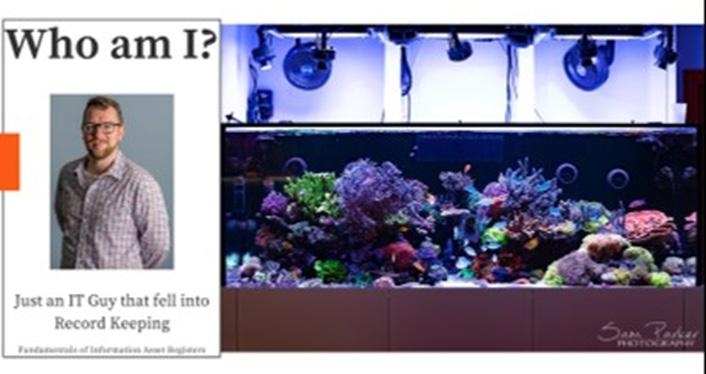
A briefing was organised for 60 key business unit staff to update the IAR. Sam immediately grabbed their attention when they saw the first aquarium slide and realised this wasn’t going to be a standard IM compliance briefing. Sam was able to link the five key IAR steps:
1. Capture quality
2. Classify and organise
3. Protect and maintain
4. Regularly review
5. Disposal
... to the management of a marine aquarium which had the audience completely engaged on each step. This approach completely opened the conversation and interest in getting the IAR update done.

Figure 6. Getting creative and engaging audience with coral.
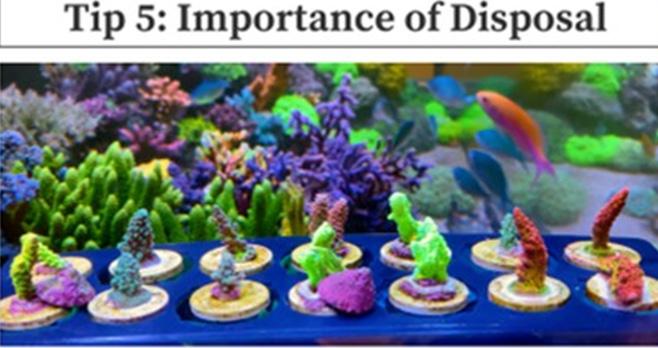
Shortly after the initial IAR briefing the CEO announced a major organisational restructure. Now this type of announcement would usually push compliance tasks to the background in the minds of staff, but largely due to this innovative job crafting approach and Sam’s passion the IAR update momentum remained. Originally the task had an objective of 40% completion but when the update finished it had a completion rate of double - 80%. Despite the organisational restructure impacting the task, job crafting helped establish strong connections and allowed the outcome to exceed expectations.
Additional benefits were that Sam, being a new staff member, quickly became known as the fish tank guy and garnered many hallway chats about coral and fish but also information management activities. This materialised also into getting information management a seat at the table on various projects that were commencing.
We’ve all had to do the less exciting work tasks at some point – the ‘tick box,’ compliance activities we send out and expect the target audience to complete.
Here are some key takeaways that I learned from job crafting so that you can kick those ‘tick box’ exercises to the kerb:
• you can’t make everyone fall in love with job crafting
• make memorable work moments for you and your team
• if you hit an issue when job crafting, try to incorporate it
• give others the opportunity to job craft
• embrace unexpected outcomes, they’ll improve it
• executives are fun people too, so give them a chance to show it!
Job crafting is a real possibility for those of you who want to take a chance and lean into your personal passions to reinvigorate your day job. Both case studies in this article started with trepidation around could job crafting these tasks be misunderstood in the organisation and should we be taking a risk? This was quickly set aside when further discussion occurred around the likely low impact from taking traditional approaches, for example sending a global e-mail. Using job crafting the tasks became fun, engagement and commitment became infectious and I saw the enjoyment of the work rapidly expand out, as shown in the case studies.
So, now with job crafting in your heart, go out and explore getting the type of job you want in the job you have.
David is the Coordinator Information Management, City of Greater Geelong (CoGG). With more than 35 years of experience in the records / information management industry, David has worked in all levels of government to guide agencies to make the most out of their information assets. David is responsible for the re-development of the information management program at CoGG and has led implementations of information management solutions at government agencies. With a passion for storytelling and all things historical David is making it fun again to work in information management.



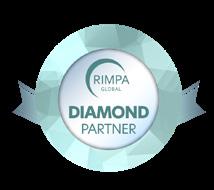
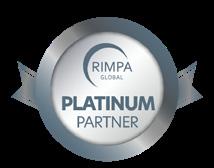











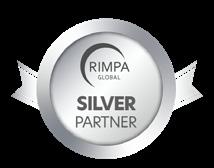



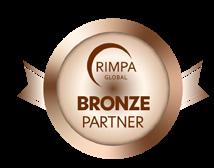

















BY DR PAIGE WILLIAMS

With two out of three workers in Australia reporting that they are experiencing burnout, and that this is impacting their physical mental, emotional and social health, feeling exhausted with the tiny traumas of everyday life and overwhelmed with the bigger challenges that come along is an everyday lived experience for many people.
THE FRAGILITY EQUATION
How fragile we feel reflects how we perceive the disruption, challenge and change in our lives and the resources we believe we have available to respond to it. It’s important to remember that disruption is not always ‘negative’—a new job, a promotion or winning a project are all positive things that can create uncertainty, pressure and challenge. No matter what the disruption, the resources we need to thrive include having the confidence, motivation, and support available to deal with the impact of it. The larger the gap between what we understand is being asked of us by the disruption and the resources we believe we have available, the more fragile we feel.
CLOSING THE FRAGILITY GAPS
There are three gaps that expose our fragility and will only get wider in the future as the workplace continues to become more complex (generative AI anyone?). Closing these gaps can help teams navigate disruption and uncertainty.
To navigate the challenges and benefit from the opportunities available now and in the future, we need to take intelligent risk and learn forward by adopting an experimentation mindset. The challenge is that our brains are wired to keep us safe, and trying something new can feel risky.
CLOSING THE GAP:
Invite your team to implement small changes and new actions regularly and assess how they went so that they can learn forward from the experience and put their learning into action. The following questions create a conversation to do this:
• What did we try?
• What we went well?
• Where did we struggle?
• What can we learn from this?
• Where and when can we apply this learning
By keeping the risk small and adopting an experimentation mindset, we keep our brains feeling safe, which boosts our motivation and confidence in trying something new. And that reduces our fragility.
No matter what the disruption, the resources we need to thrive include having the confidence, motivation, and support available to deal with the impact of it.
"There are three gaps that expose our fragility and will only get wider in the future as the workplace continues to become more complex..."

Much of the fragility we create comes from the gap between our expectations—what we believe the world ‘should’ look like—and what we actually experience day to day. This gap becomes a black pit for energy, attention and effort and creates unnecessary drama in teams.
CLOSING THE GAP:
Epictetus, a prominent Stoic philosopher in the first and second centuries, is understood to have said, ‘The chief task in life is simply this: to identify and separate matters so that I can say clearly to myself which are externals, not under my control, and which have to do with the choice I actually control.’
Help your team to do this by inviting them to identify what about a situation they can’t control; what they can control; and what they can influence, and to what degree – high/medium/low. By understanding what they ‘can’t control’ teams are clearer about what is ‘on the table’ for discussionwhat can be controlled/influenced - in meetings and discussions, and plan effective action on that basis.
In a volatile, uncertain, complex, ambiguous and accelerating world, traditional approaches to leadership, strategy, and change are not only becoming less and less effective, but also actually creating barriers to success. Most workplaces still operate under a model of leadership premised on the assumption of a system that is mostly stable, and that simply requires data, analysis, strategic vision, and tactical plans to solve problems and to realise opportunities that arise.
CLOSING THE GAP:
Instead of trying to ‘manage change’ as a response to disruption, harness the collective wisdom of your team by ‘tracking’ – actively looking for the things we want more of and recognising where and why they are occurring – and ‘fanning’ – adding resources and support, and acknowledging and appreciating people’s efforts to heighten energy, momentum, and commitment. By supporting our teams to use their experiences of navigating change, disruption and the challenge that comes with them to expand and develop, we reduce fragility and build resources that support us to thrive. As a result, we are all more able to lead ourselves, our teams, and the systems we live and work in, exceptionally.
Dr Paige Williams is a keynote speaker, organizational psychologist and researcher. The author of five books on leading well in modern times, Paige’s latest book The Leaders Ecosystem support leaders – formal and informal; at work and at play - to meet the challenges and opportunities of our time, and lead themselves, the systems they operate and the people they work with, exceptionally. Explore more at drpaige.au.


ACA Pacific is a leading distributor of Document Scanners, Capture Software and Information Management solutions, designed to fast track your path to Digital Transformation. As the distributor for Kodak Alaris Scanners and Software, ABBYY solutions, Contex & Colortrac Wide-Format Scanners and GetSignature eSign solution, we can digitise just about any size and type of document, making it easy to store, share and manage business ready information. Deliver powerful benefits and real-world value to any job function and organisation.
Locations: Melbourne, Sydney, Brisbane, Perth, Auckland Ph: 1300 761 199 | E: imagingsales@acapacific.com.au | W: acapacific.com.au

Collaborate with confidence. AvePoint provides the most advanced platform for SaaS and data management to optime SaaS operations and secure collaboration. More than 8 million cloud users rely on our full suite of solutions including records & information management to make them more productive, compliant and secure. Locations: Sydney, Melbourne Ph: 03 3535 3200 | E: au_sales@avepoint.com | W: avepoint.com
Compu-Stor is a family-owned Australian business specialising in information and records management solutions and services. From document, media & data storage to digital scanning, business process automation and consulting services, Compu-Stor provides a wide range of solutions using the latest technologies & methodologies to deliver secure & efficient services. Through its Digital Transformation Solutions, Compu-Stor helps maximise the accessibility of information within organisations. Compu-Stor works with its customers to provide costeffective solutions tailored to their needs. Locations: Across Australia Ph: 1300 559 778 |E: sales@compu-stor.com.au | W: compu-stor.com.au

We see ourselves as your strategic business partner, not just another supplier. As the cost of running your business continues to rise and your customer’s preferred source of communication becomes digital, we have developed innovative solutions to help you adapt efficiently and effectively, not only in today’s environment but for the future. We recognise it is no longer viable to be just ‘another supplier’. Our focus is to truly understand your business challenges and strategic direction so we can support you as a trusted business partner.
Ph: 0481 009 779 | E: john.cox.ez@fujifilm.com | W: www.fujifilm.com/fbdms

Grace ensures business information is managed as the high-value asset it is, throughout its lifecycle — Capture, Control, Storage, Access, and Secure Disposal. Established in 1911, Grace operates a national network of 28 branches across every capital city and major regional centre, each equipped to provide best-in-class secure physical records and specialist digital information management solutions. Partnering with Grace ensures information is expertly managed, whilst our digital specialists provide tailored transformation pathways to increase digital maturity. Locations: Across Australia Ph: 1800 057 567 | E: GIM-sales@grace.com.au | W: grace.com.au/information

iCognition is an Australian SME and the trusted advisor of choice to our clients for enterprise-wide information management and governance, consultancy and solutions implementation. We provide IMG services and software to government, not-forprofit, education and private sector enterprises across Australia and overseas. iCognition’s goal is to ensure enterprises maximise the value of their information, while minimising cost and risk. Locations: Canberra, Sydney, Adelaide and Brisbane Ph: 0434 364 517 | E: Nicholas.Fripp@icognition.com.au | W: icognition.com.au

CorpMem Business Solutions specialises in the MAGIQ Documents EDRMS and provides a wide range of services focused on improving your business by increasing the Return on Investment (ROI) made to deliver records management. InfoVantage is our flagship software designed to create a Records and Information Management Knowledge Platform that leverages off and integrates into whatever corporate EDRMS you have implemented. CorpMem converts their clients’ corporate memory into a knowledge asset. Location: Caloundra Ph: (07) 5438 0635 | E: hello@corpmem.com.au | W: corpmem.com.au
EzeScan is one of Australia’s most popular production capture applications and software of choice for many Records and Information Managers. Solutions range from centralised production records capture, highly automated forms and invoice processing to decentralised enterprise digitisation platforms which uniquely align business processes with digitisation standards, compliance and governance requirements. Contact: Demos Gougoulas, Director Sales & Marketing | 1300 393 722

Ignite has been assisting public and private sector organisations with talent services since 1984. We provide Specialist Recruitment (IT, Federal Government, Business Support & Engineering), On Demand (IT managed services) and Talent Solutions (RPO, Training, recruitment campaigns & talent management services). For four decades, we’ve been igniting the potential of people and have built a reputation as Australia’s trusted talent advisor. Locations: Sydney, Western Sydney, Canberra, Melbourne, Perth Ph: 02 9250 8000 | E: Catherine.hill@igniteco.com | W: igniteco.com


Information Proficiency is a Records and Information Management specialist providing a full range of services and software. We cover everything IM; from strategy to daily operational processing practitioners, full managed services, technical support and helpdesk, training, software development, data migration, system design and implementations. We work with many IM products including MS365, e-signature, workflow, scanning, reporting and analytics. We also develop a range of productivity tools and connectors. We work hard to understand your requirements and implement solutions to match. Services available in all states and territories. Locations: Perth, Western Australia Ph: 08 6230 2213 | E: info@infoproficiency.com.au | W: infoproficiency.com.au

Make your business process more efficient and exact! Are process inefficiencies and data inaccuracies weighing your team down and causing errors? Do you currently achieve a data extraction accuracy of over 99%? Are you under pressure to improve outcomes while reducing costs and processing time? Are you looking for an easy, effective, and proven solution? Get the exact business process automation eSolution for your needs, with a team of dedicated experts supporting you. Talk to the Exedee team today! Ph: 1800 144 325 (Melb) | W: www.exedee.com
At FYB our customer promise is to provide secure, easy to use, leading edge technological solutions, to enable organisations to harness the power of their information so they can provide excellent services to the community. We’ve stayed true to our core beliefs—to deliver the best information governance, systems and solutions to our customers.
Ph: 1800 392 392 | E: info@fyb.com.au | W: fyb.com.au


Iron Mountain Incorporated (NYSE: IRM), founded in 1951, is the global leader for storage and information management services. Trusted by more than 225,000 organisations around the world, and with a real estate network of more than 85 million square feet across more than 1,400 facilities in over 50 countries, Iron Mountain stores and protects billions of valued assets, including critical business information, highly sensitive data, and cultural and historical artefacts. Ph: 02 9582 0122 | E: anita.pete@ironmountain.com | W: ironmountain.com
iFerret is a turnkey enterprise search solution developed by iPLATINUM that works like "google" over your corporate data. iFerret enables you to find information quickly across your enterprise. Location: Sydney, Melbourne Ph: 02 8986 9454 | E: info@iplatinum.com.au | W: iplatinum.com.au


Leadership Through Data provide Microsoft 365 focused information and records management training that has been developed by information and records managers to Australian and New Zealand Records Standards. Our core offerings are designed to help Information and Records Managers make sense of Microsoft 365 so that strategy and policy can be developed with a true and accurate understanding of the platform’s capability. Our SharePoint Foundation offering helps with understanding the core of M365 before providing education in specific aspects – Records Management, Information Protection and Privacy Management, and Information Architecture. E: jacqueline@ leadershipthroughdata.co.uk | W: leadershipthroughdata.co.uk

Objective Corporation - Powering digital transformation with trusted information. With a strong heritage in Enterprise Content Management, regulation and compliance, Objective extends governance capability throughout the modern workplace; across information, processes and collaborative workspaces with governance solutions that work with Objective ECM, Micro Focus Content Manager and Microsoft 365. Through a seamless user experience, people can access the information they need to make decisions or provide advice from wherever they choose to work. Locations: Australia: Sydney, Wollongong, Canberra, Brisbane, Melbourne, Adelaide, Perth; New Zealand: Wellington, Palmerston North Ph: 02 9955 2288 | E: enquiries@objective.com | W: objective.com.au

OpenText, The Information Company™, enables organisations to gain insight through market leading information management solutions, powered by OpenText Cloud Editions. OpenText is one of the world’s largest global software providers, delivering mission critical technology to empower 125,000 customers across 180 countries. We believe that companies of all sizes can be smarter by bringing information and automation together and delivering smarter outcomes by helping customers BUILD, AUTOMATE, CONNECT, SECURE, PREDICT and ACT. Ph: 02 9026 3400 | W: opentext.com
Since 1989, Professional Advantage has excelled as a top IT solutions provider and Microsoft Solutions Partner in Australia, specializing in modern work, cloud, security, financial management, and business intelligence for various sectors. As an exclusive iWorkplace/ Information Leadership Partner, we leverage Microsoft 365 for effective digital workspaces, information management, and data governance. Our skilled team, boasting a high NPS and long client relationships, operates across 7 offices in 3 countries, serving over 1000 clients globally. Ph: 1800 126 499 | E: enquiries@pa.com.au | W: www.pa.com.au
Founded in 2009, RecordPoint is a global leader in cloud-based information management and governance services. Our adaptable layer of intelligence offers complete insight and control over all in-place data, records, and content, enabling organisations to increase compliance and reduce costs. RecordPoint enables regulated companies and government agencies to reduce risk, achieve greater operational efficiency, and drive collaboration and innovation. Ph: 02 8006 9730 | E: salesapac@recordpoint.com | W: recordpoint.com


TIMG (The Information Management Group) has been in the Information Management business for more than 20 years. We are known as a company that solves Information Management problems and, as such, we remain committed to providing innovative, smart and cost-effective information management solutions for our clients. As the digital world rapidly evolves, we remain committed to helping clients accurately store, track, access, retrieve and cull data. Some of the services we offer include document conversion and digitisation (including scanning, printing and data capture), document storage and archiving solutions, sentencing, secure document destruction, Ph: (02) 9305 9596 | E: info@timg.com | W: timg.com
Votar Partner's number one priority is our clients. Working independently of all software and IT vendors, we offer our proven and specialised expertise to empower our clients to achieve their goals. Our subject matter experts can help you develop and implement practical initiatives across each stage of the information management lifecycle, ensuring that your records and information management practices support and enable business improvements, and remain relevant.
Ph: (03) 9895 9600 | E: votar@votar.com.au | W: votar.com.au


WyldLynx – We take your business personally. WyldLynx provides Information Management, Governance solutions and services using a unique blend of cutting-edge technology, real world experience and proven industry principles. This allows Organisations to manage their Information, Security, Privacy and Compliance across enterprise systems with reduced risk, complexity, and cost. WyldLynx has a reputation for delivering value through long term relationships built on trust, shared vision, and a continual investment in relevant innovation. Locations: Brisbane Ph: 1300 995 369 | E: contact@wyldlynx.com.au | W: wyldlynx.com.au
A market leader in Records and Information Management, ZircoDATA provides secure document storage and records lifecycle solutions from information governance and digital conversion through to storage, translation services and destruction. With world class Record Centres nationally, we deliver superior service and solutions that reduce risk and inefficiencies, securely protecting and managing our customers’ records and information 24 hours a day, every day of the year. Locations: HQ Braeside, Victoria Ph: 13 ZIRCO (13 94 72) | E: services@zircodata.com.au | W: zircodata.com.au


Records Solutions is an Australian-owned company, founded in 1994. Created BY Information Managers FOR Information Managers, our team provide records and information management solutions to the industry. As a software neutral vendor, our only concern when working with you is what is best for you. With a Quality Management System developed in accordance with AS/NZS ISO 9001:2016, we aim to assist you in achieving the best outcome for your project. Locations: Brisbane Ph: 1300 253 060 | E: admin@rs.net.au | W: rs.net.au




















We are delighted to introduce the newly elected Board members who will commence their roles in 2025. Their diverse expertise and fresh perspectives promise to drive RIMPA Global towards new heights of excellence.

With over 20 years of experience in records and information management and nine years of volunteer service with RIMPA Global, Julie is dedicated to strengthening RIMPA Global’s strategic pillars, enhancing member value, and driving industry growth. Her deep industry knowledge and strong professional relationships enable her to identify opportunities aligned with RIMPA Global’s goals.
Julie is committed to collaborating with board members and ambassadors to support both local and global initiatives, while also fostering professional growth and engaging new practitioners. As a board member, she will focus on enhancing governance, driving sustainable initiatives, and advocating for ethical practices. Julie was RIMPA Global 2024 Outstanding Volunteer winner and looks forward to continuing her work on the board.

With 35 years of experience in information management across sectors like government, healthcare, education, and defence, Matt has advanced from clerical medical records to become the inaugural Records Manager at Archives New Zealand and later served as Chief Executive in local government. His career, spanning Australia, New Zealand, and the Pacific Islands, has focused on helping organisations leverage information and technology to solve challenges and create opportunities.
A long-time contributor to RIMPA Global, Matt has built strong community connections through event presentations and training facilitation. He is committed to advancing RIMPA Global’s mission and is honoured to advocate for its members, bringing valuable insights on data integrity and AI to the Board.

We look forward to the valuable contributions each of these new and returning members will bring, fostering innovation and collaboration as we continue to advance RIMPA Global's mission and future growth.














In the dynamic records and information management landscape, it is crucial that you can trust any data that is imported during your business automation processes. We can deliver 99% accuracy to you.
Exedee software is driven by the “power of e” – we make anything to do with digitisation of records and business information processing easy, effortless, exact and efficient
Efficiently digitalises tens of thousands of documents in a short time
Effective governance demonstrated through complete and accurate metadata
Ensures you stay in control of information with a single source of truth for each document and a reliable search index
Enables increase in document transparency, accessibility and data quality
We put our energy and expertise into enabling all types of organisations to manage process automation and digitisation with ease – and with 99% accuracy
Talk to the Exedee team of experts today, and find out how we can help you.
Visit www.exedee.com and register your interest.
